

Speech on Crime
Crime, a term you often hear, refers to acts that break the law. It’s a complex topic that can evoke strong emotions.
You may think of theft, violence, or fraud when you hear ‘crime’. It’s a vast field, with many facets to explore.
1-minute Speech on Crime
Ladies and gentlemen, I stand before you today to talk about a topic that affects us all – crime. Crime is when someone breaks the law. It’s like playing a game but not following the rules. It hurts us, our families, and our communities.
Firstly, let’s talk about why people commit crimes. Some people might do it because they are poor and need money. Others might do it because they are angry or upset. It’s like when you’re so hungry, you might think about taking a cookie without asking. Or when you’re so mad, you might want to hit someone. But we know that’s not the right thing to do.
Secondly, what happens when someone commits a crime? They often get caught by the police. Then they might go to court, where a judge decides if they are guilty. If they are guilty, they might have to go to prison. It’s like getting a time-out, but much, much worse.
Finally, how can we stop crime? We can start by teaching everyone right from wrong. We can also make sure everyone has what they need, so they don’t have to steal. And if someone is feeling angry or upset, we can help them find better ways to deal with their feelings.
In conclusion, crime hurts everyone. It’s like a stone thrown into a pond, the ripples spread out and touch everyone. But if we work together, we can make our world a safer, happier place. Thank you.
Also check:
- Essay on Crime
2-minute Speech on Crime
Ladies and Gentlemen,
Let’s talk about crime. Crime is when someone breaks the law. We have laws to keep us safe, to protect our rights, and to make sure we treat each other fairly. When someone breaks these laws, they commit a crime.
Firstly, let’s look at the different types of crimes. Some are small, like stealing a candy bar from a store. Others are big, like hurting someone on purpose. Some crimes hurt people, and some crimes hurt property. We need to understand that all crimes are wrong, no matter how small.
Now, why do people commit crimes? There are many reasons. Some people might not have enough money and feel they need to steal. Others might be angry or scared and react in a harmful way. Sometimes, people commit crimes because they don’t know it’s wrong or they don’t think they will get caught. Understanding these reasons can help us prevent crime.
So, what can we do to stop crime? There are many ways. We can teach people about the law, so they know what’s right and wrong. We can help people who are struggling, so they don’t feel the need to steal. We can also make sure that people who commit crimes are caught and punished. This shows everyone that crime doesn’t pay.
But it’s not just about punishing people who commit crimes. We also need to help them change. This is called rehabilitation. It means helping people learn new skills, understand their actions, and make better choices in the future. Rehabilitation is important because it helps people become law-abiding citizens again.
Lastly, let’s talk about the victims of crime. It’s not just about the person who committed the crime. Crimes hurt people. They can cause physical harm, emotional pain, and financial loss. It’s important to support victims and help them recover. This includes providing medical care, counseling, and financial support.
In conclusion, crime is a serious issue that affects us all. It’s important to understand what crime is, why people commit crimes, and what we can do to prevent it. We need to punish those who break the law, help them change, and support the victims. By doing this, we can create a safer and fairer society for everyone.
- Speech on Creativity
- Speech on Craze Of Social Networking Sites
- Speech on Cow’s Milk
We also have speeches on more interesting topics that you may want to explore.
Leave a Reply Cancel reply
Your email address will not be published. Required fields are marked *
Save my name, email, and website in this browser for the next time I comment.
Watch CBS News
"We will find you": Biden signals crackdown on gun dealers who break the law
- https://www.cbsnews.com/live-updates/biden-crime-gun-violence-speech-watch-live-today-06-23-2021/ link copied
By Bo Erickson, Caroline Linton and Grace Segers
Updated on: June 23, 2021 / 9:08 PM EDT / CBS News
President Biden said he is holding out hope for the reinstatement of the Assault Weapons Ban after a speech outlining a strategy on crime and gun prevention. Mr. Biden's speech focused heavily on guns, saying his administration plans to reduce gun violence through revoking licenses to sell guns through loopholes.
"Today the [Justice] Department is announcing a major crackdown to stem the flow of guns used to commit violent crimes," Mr. Biden said. "It's zero tolerance for gun dealers who willfully violate key existing laws and regulations. And I repeat, zero tolerance. If you willfully sell a gun to someone who is prohibited from possessing it, if you willfully fail to run a background check, if you willfully falsify a record, if you willfully fail to cooperate with inspections, my message to you is this: We will find you."
Mr. Biden said the Justice Department may be used to reduce gun violence and close the "boyfriend loophole" to keep guns out of the hands of abusers.
Mr. Biden called gun violence an "epidemic" throughout the country and reiterated the cyclical nature of violence with more crime in the summer annually. The president also warned that after the pandemic this "traditional summer spike may be more pronounced."
Mr. Biden's speech is centered around the 30% increase in homicides last year during the pandemic across the country, according to a 34-city sample from the National Commission on COVID-19 and Criminal Justice, which was cited by the White House.
Aggravated assaults and gun assaults also rose by 6% and 8% last year, according to the study.
The White House refused to specify earlier this week when asked why Mr. Biden is speaking now, although Republicans have been focusing on crime as violent crimes have increased this year and ahead of the 2022 elections. In New York City, for example, polls showed crime and public safety as the top issue in Tuesday's primary.
But the plan is focused on local initiatives that are voluntary, such as suggesting cities use leftover COVID-19 pandemic relief funds for community policing funds or teenage job programs. Mr. Biden has already rolled out several executive action aimed at curbing gun violence, and has called on Congress to ban assault weapons.
Attorney General Merrick Garland, who spoke ahead of Mr. Biden, outlined how his office will work with "state, local, Tribal and territorial law enforcement."
"Every U.S. Attorney's Office is working with its local partners to establish an immediate plan to address the spike in violent crime that typically occurs during the summer," Garland said.
Watch Biden's full speech
President Biden spoke Wednesday on crime, focusing heavily on guns and saying his administration plans to reduce gun violence through revoking licenses to sell guns through loopholes. Watch his speech.
- https://www.cbsnews.com/live-updates/biden-crime-gun-violence-speech-watch-live-today-06-23-2021/#post-update-42f6ea7f link copied
President advocates to re-install the assault weapons ban
After his remarks, Mr. Biden was asked if he is holding out hope that Congress can pass another ban on assault weapons: "I never give up hope," the president replied.
Passed in 1994, the first federal ban on assault weapons banned the sale of semi-automatic weapons and large capacity magazines to civilians, but the law expired in 2004. One study in 2019 in the Journal of Trauma and Acute Care Surgery found that homicides from mass-shooting incidents were reduced while the assault weapons ban was in place.
At least seven states and Washington, D.C., have moved to ban assault weapons.
- https://www.cbsnews.com/live-updates/biden-crime-gun-violence-speech-watch-live-today-06-23-2021/#post-update-4abcfd04 link copied
President warns there may be "summer spike" of violence, announces COVID-19 funds can be used to boost community policing
Mr. Biden's speech is centered around the 30% increase in homicides last year during the pandemic across the country, according to a 34-city sample from the National Commission on COVID-19 and Criminal Justice, which was cited by the White House.
The Biden administration on Wednesday is also issuing new guidance to state and local governments on how they can use the already-passed $350 billion from the latest COVID-19 relief package, the American Rescue Plan, to pay for more community policing. The Treasury Department specifically states that some local governments can hire law enforcement officials "even above pre-pandemic levels" or pay over time "in those communities experiencing an increase in gun violence associated with the pandemic."
Mr. Biden also said local governments could use the COVID-19 appropriate money to buy devices to tackle gun violence like gun-shot detection systems, but also to scale up social services like substance abuse and mental-health services.
About 74% of the 13,927 murder victims nationwide in 2019 were killed by people using a firearm, according to the latest FBI statistics .
- https://www.cbsnews.com/live-updates/biden-crime-gun-violence-speech-watch-live-today-06-23-2021/#post-update-b07abf2b link copied
Biden says there will be a "zero tolerance" policy on gun dealers who break the law
In his remarks, Mr. Biden said there would be a "zero tolerance" policy for gun dealers who break the law.
"My message to you is this: we will find you, and we'll seek your license to sell guns," Mr. Biden said. "We will make sure you can't sell death and mayhem on our streets."
Mr. Biden also argued that there is no need for people to own assault weapons.
"No one needs to have a weapon that can fire over 30, 40, 50, even up to 100 rounds — unless you think the deer are wearing kevlar vests or something," he said.
- https://www.cbsnews.com/live-updates/biden-crime-gun-violence-speech-watch-live-today-06-23-2021/#post-update-edcf3579 link copied
Garland announces next steps for preventing violent crime
Garland spoke ahead of Mr. Biden, outlining how the Justice Department will offer "targeted support of the critical work" of state, local, tribal, and territorial law enforcement partners. Garland announced $1 billion in grants "to support evidence-based community violence intervention strategies."
Garland also announced new efforts to combat gun violence, with greater enforcement for gun dealers who break the law, and by seeking funding to aid the ATF's dealer inspection capacity and improve its effectiveness.
"Starting today, ATF will make clear to investigators in every field division that, as they prioritize inspections, they must consider the extent to which firearms sold by a dealer are later used in criminal activity," Garland said.
Garland also announced that the Justice Department will "improve information sharing" with state, local, tribal and territorial partners, as well as "a concerted effort to crack down on gun traffickers."
"The Justice Department's violent crime reduction strategy, and our initiatives to stem the rising tide of illegal guns, will save lives," Garland said. "But these steps alone will not solve the problem of violent crime. Success depends on all of us joining together – those of you in this room, the many like you across the country who are working to keep communities safe, and the people of our communities themselves."
- https://www.cbsnews.com/live-updates/biden-crime-gun-violence-speech-watch-live-today-06-23-2021/#post-update-23ee42a2 link copied
Republicans criticize Biden's plan to address crime
Republican Senator Lindsey Graham told reporters on Wednesday that he believed the White House was "misdiagnosing the problem" with the newly announced approach to combat gun violence and violent crime.
"There's nothing in this five-point plan that I think addresses the root cause of the problem, which is lack of prosecution and a sense that the cops are afraid to do their job," said Graham, who is one of the senators involved in bipartisan negotiations on police reform legislation. "You've got to reinforce policing as a noble profession, you've got to tell prosecutors, 'start prosecuting people,' because there's a sense of lawlessness out there that's not being addressed."
The Republican National Committee also released a statement on Wednesday condemning the Biden administration's response to violent crime.
"Actions speak louder than words, and President Biden's failure to hold his own party accountable for defunding police is endangering communities and triggering a spike in crime across the country," said RNC national press secretary Emma Vaughn.
- https://www.cbsnews.com/live-updates/biden-crime-gun-violence-speech-watch-live-today-06-23-2021/#post-update-8e00187c link copied
Biden rolling out gun violence prevention strategy
President Biden is unveiling a new initiative aimed at tackling what he calls the nation's "gun violence epidemic." The administration's initiatives include stemming the flow of illegal guns, supporting local law enforcement and investing in community violence intervention methods. The administration will also expand summer programming and employment opportunities for teenagers and young adults and lay out a strategy to help formerly incarcerated individuals successfully reenter their communities. Paul Smith, director of reconciliation at the National Network for Safe Communities at John Jay College of Criminal Justice, joined CBSN to discuss.
- https://www.cbsnews.com/live-updates/biden-crime-gun-violence-speech-watch-live-today-06-23-2021/#post-update-2570b7dd link copied
How to watch Biden and attorney general deliver remarks
- What: President Biden and Attorney General Merrick Garland deliver remarks on the administration's gun crime prevention strategy
- Date: Wednesday, June 23, 2021
- Time: 3:30 pm. ET
- Location: State Dining Room, The White House, Washington, D.C.
- Online stream: Live on CBSN in the player above and on your mobile or streaming device
- https://www.cbsnews.com/live-updates/biden-crime-gun-violence-speech-watch-live-today-06-23-2021/#post-update-43821a44 link copied
Psaki says Biden has been "consistent" on his views on guns
White House press secretary Jen Psaki reiterated to reporters on Wednesday that President Biden has been "consistent" on gun violence.
"He has also been a longtime advocate for decades and leader on addressing gun violence," Psaki said. "So this is actually a continuity of his leadership on these issues over the course of decades."
Psaki also insisted Wednesday that Mr. Biden had never been a supporter of "defunding the police. He has always been a supporter of ensuring that local community policing is funding and adequately supported by the federal government."
As for why Mr. Biden is discussing crime and gun violence now, Psaki did not offer a specific reason when asked on Tuesday. But she argued this focus is a "continuation" of actions already taken by the administration to address gun violence. However, the crime study cited by the White House from the National Commission on COVID-19 and Criminal Justice may offer context for this week's presidential speech as the commission underscores that violence is "cyclical" with more crime happening in the summer months.
— Bo Erickson and Caroline Linton
- https://www.cbsnews.com/live-updates/biden-crime-gun-violence-speech-watch-live-today-06-23-2021/#post-update-873cf3c4 link copied
Harris to visit border Friday
Vice President Kamala Harris is going to the U.S.-Mexico border with Homeland Security Secretary Alejandro Mayorkas on Friday for her first trip to the border since being tapped to stem the flow of migration from Central America, the White House said Wednesday.
President Biden has tasked Harris with addressing the root causes of increased migration at the southern border, but Republicans have criticized Harris for failing to go to the border until now. Harris visited Guatemala and Mexico earlier this month, and when she was asked why she wasn't visiting the border during a television interview, she compared not visiting the border to not visiting Europe.
Harris will travel to El Paso, Texas, senior adviser Symone Sanders said in a statement.
— Tim Perry and Kathryn Watson
- https://www.cbsnews.com/live-updates/biden-crime-gun-violence-speech-watch-live-today-06-23-2021/#post-update-264e8018 link copied
Biden speaks at Senator John Warner's funeral ahead of speech
President Biden spoke at the funeral of former Republican Senator John Warner of Virginia on Wednesday, praising the late lawmaker's legacy of bipartisanship at a time when there is very little of it. The funeral for Warner, a moderate Republican, evoked an arguably bygone era of bipartisan camaraderie and cooperation.
"Even when we disagreed, from John's perspective, especially when we disagreed, that's how John forged consensus. And made sure our system worked, and delivered for the people," Mr. Biden said. "I saw it time and again, on issues of war and peace, John opposing torture, and ending gun violence. On protecting the rule of law, and the independence of the judiciary. John's decisions were always guided by his values, by his convictions, and never by personal political consequences."
Warner and Biden served decades together in the Senate. Warner was a senator from 1979 to 2009, while Mr. Biden served in the upper chamber from 1973 to 2009.
Mr. Biden is expected to speak this afternoon from the White House on crime.
Read more here .
- https://www.cbsnews.com/live-updates/biden-crime-gun-violence-speech-watch-live-today-06-23-2021/#post-update-9b2f7f6e link copied
White House plan has 5 major points
According to the White House, the plan will consist of five parts:
"Stem the flow of firearms used to commit violence, including by holding rogue firearms dealers accountable for violating federal laws": Senior administration officials said this will include a new Justice Department "zero tolerance" policy, where ATF will revoke the licenses of gun dealers after the first time they willfully violate gun laws.
"Support local law enforcement with federal tools and resources to help address summer violent crime": The Treasury Department will announce Wednesday that communities that have experienced a rise in gun violence due to the pandemic will be allowed to use funds from the American Rescue Plan to go toward law enforcement hiring and overtime, prevention programs and technology.
"Invest in evidence-based community violence interventions": Communities will also be able to use American Rescue Plan funding towards community violence intervention programs, senior administration officials said.
"Expanding summer programming, employment opportunities, and other services and supports for teenagers and young adults."
"Help formerly incarcerated individuals successfully reenter their communities."
- https://www.cbsnews.com/live-updates/biden-crime-gun-violence-speech-watch-live-today-06-23-2021/#post-update-305be0ae link copied
Democratic leader in NYC mayoral race talks crime in election night speech
Eric Adams, who was leading the Democratic race in the New York City mayoral primary after the initial results were released, touched on crime during his speech Tuesday.
"If Black lives really matter, it can't only be against police abuse," Adams said. He added that "let's be honest about ensuring Black Lives Matter" in issues "that affect us everyday" such as crime, guns, food and housing.
Adams, who is Black, is a former police officer who has made crime prevention a major part of his campaign. "If we can beat the pandemic of a virus, we can beat the pandemic of crime," he said.
- https://www.cbsnews.com/live-updates/biden-crime-gun-violence-speech-watch-live-today-06-23-2021/#post-update-d63ac539 link copied
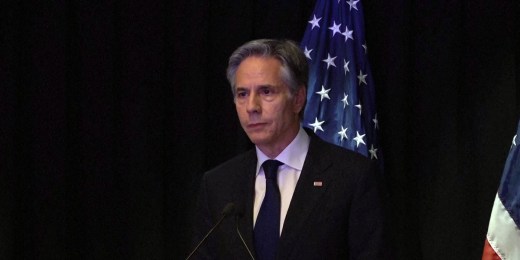
Blinken: Russia would struggle in Ukraine without China’s support
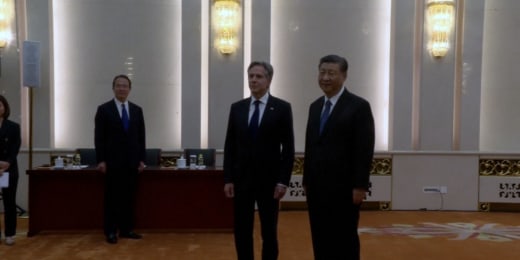
Xi welcomes Blinken as the U.S. and China work to stabilize ties
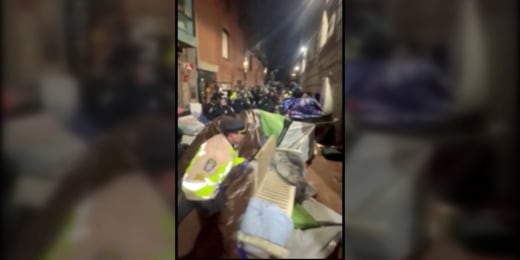
Police and pro-Palestinian protesters clash at Boston's Emerson College

Chicago's iconic Rat Hole sidewalk landmark is removed
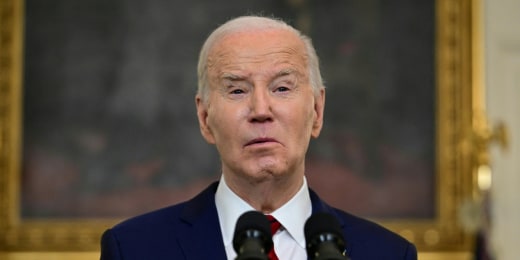
Foreign aid passes: How the delay in funding affected Ukraine and Israel wars
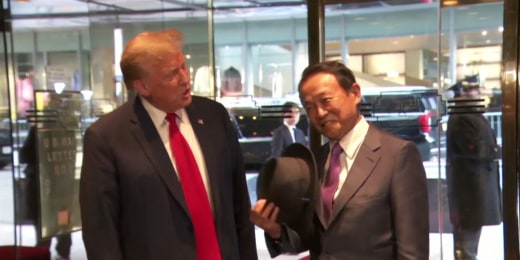
Donald Trump welcomes former Japanese prime minister to New York

Watch: Boeing 747 makes bumpy touch-and-go at LAX

Jewish student protesters say antisemitism is being weaponized against them
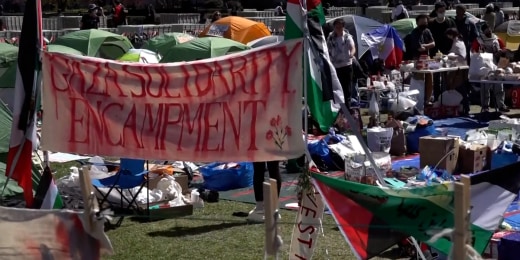
Pro-Palestinian encampments grow on college campuses in the U.S.
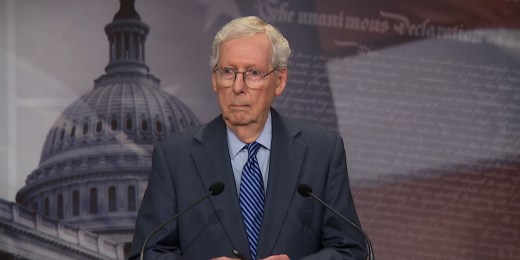
McConnell says Tucker Carlson, Trump, behind delayed Ukraine aid
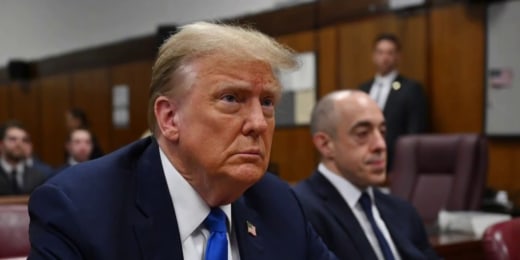
Election interference and witness credibility in focus during Trump opening statements
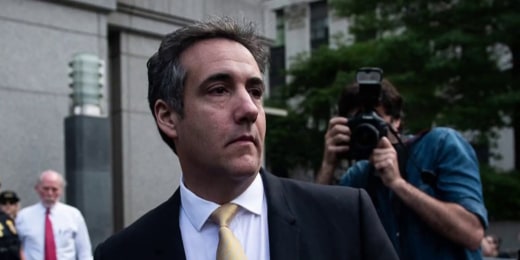
Michael Cohen’s credibility will be in the spotlight when he takes the stand

Universal Studios tram accident leaves at least 15 injured
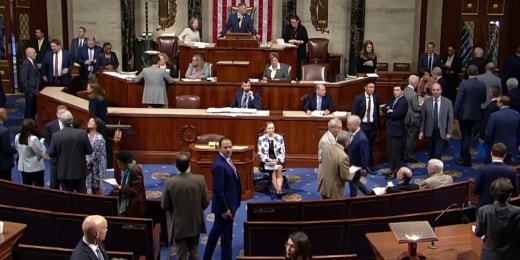
House passes foreign aid bills and bill that could ban TikTok
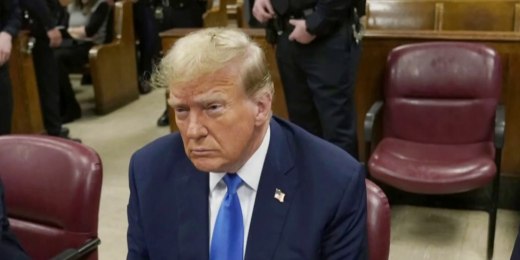
Jury seated in Trump hush money trial
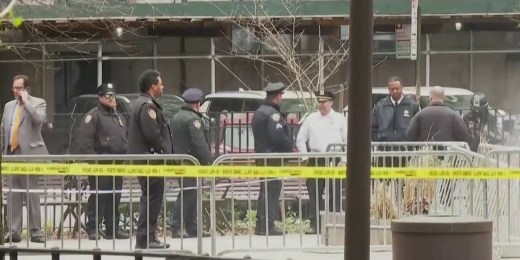
Man sets himself on fire outside Trump trial, witness says
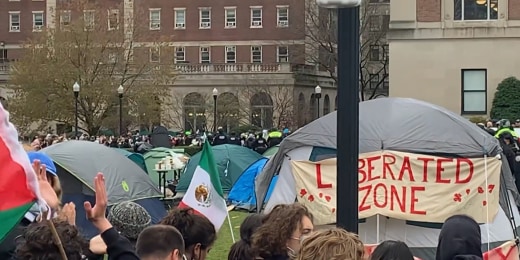
Pro-Palestinian protesters gather at Columbia University
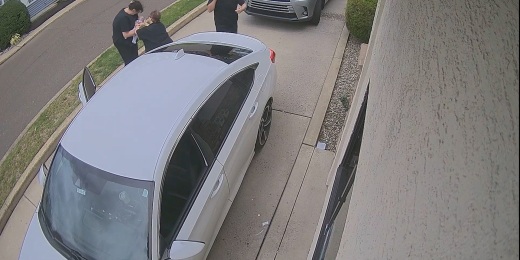
Video shows moment Taco Bell employee saves baby struggling to breathe
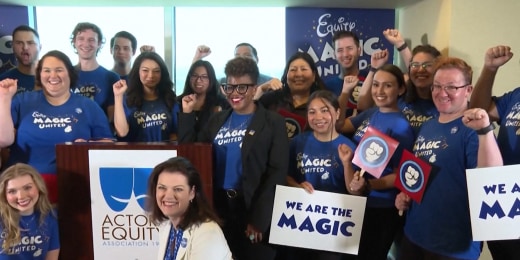
Disneyland character performers push for union

Canadian and U.S. authorities reveal the 'largest gold heist in Canadian history'
Live / biden delivers remarks on actions to reduce crime.
Watch live coverage as President Biden delivers remarks on his administration's efforts to reduce crime and make communities safer. Feb. 28, 2024
Best of NBC News
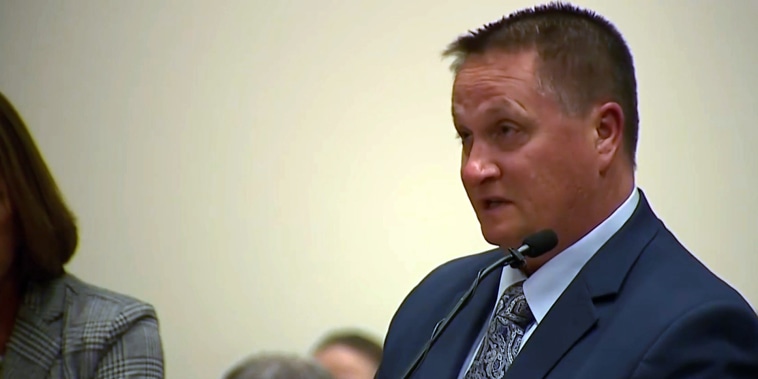
NBC News Channel
Paramedic sentenced to 4 years of probation for role in death of elijah mcclain.

NBC News NOW
How gen z is creating a resurgence of romance novels.
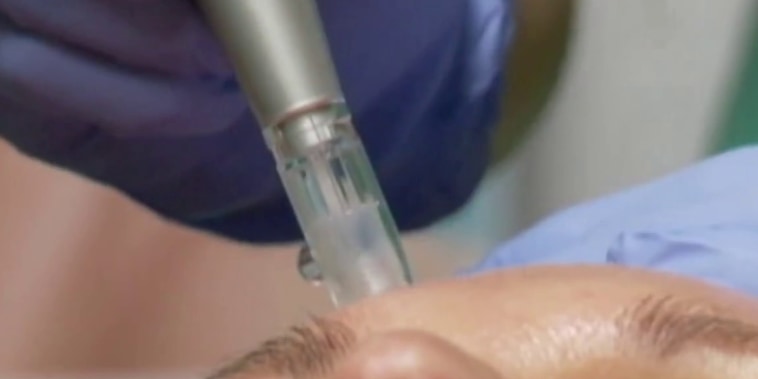
CDC: Three women likely infected with HIV while getting 'vampire facial' at unlicensed spa
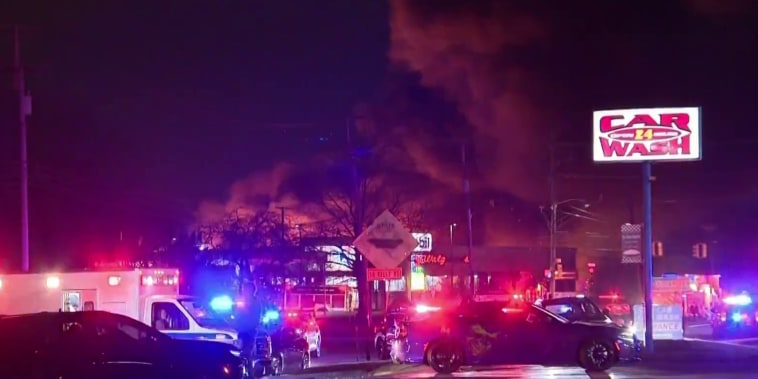
Police arrest owner of warehouse that exploded at airport with one-way ticket

Nightly News
Study finds electric vehicles lose value more quickly than gasoline-powered cars.
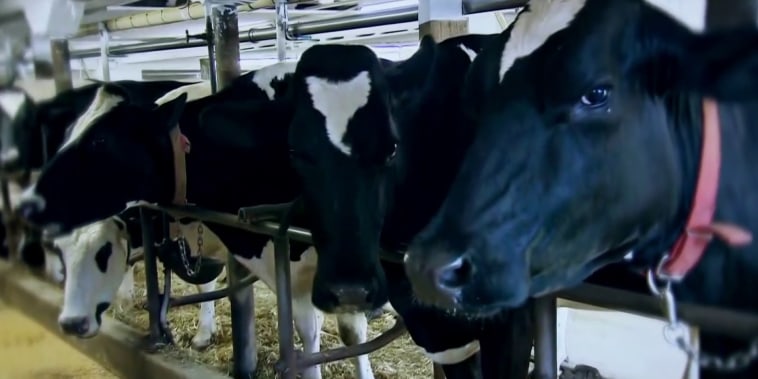
New concern about bird flu in cows as traces of the virus appear in more milk samples

President Biden Remarks on Crime Prevention and Community Safety
President Biden spoke on what his administration is doing to combat crime and protect public safety
Javascript must be enabled in order to access C-SPAN videos.
- Text type Full Transcript Text People Graphical Timeline
- Filter by Speaker All Speakers Joe Biden James White
- Search this text
*This text was compiled from uncorrected Closed Captioning.
People in this video
- Joe Biden U.S. President United States
- James White Police Chief Detroit, MI->Police Department
Hosting Organization
- White House White House
Airing Details
- Feb 28, 2024 | 2:35pm EST | C-SPAN 1
- Feb 28, 2024 | 6:07pm EST | C-SPAN 1
- Feb 28, 2024 | 7:59pm EST | C-SPAN RADIO
- Feb 28, 2024 | 8:05pm EST | C-SPAN 1
- Feb 29, 2024 | 12:41am EST | C-SPAN RADIO
- Feb 29, 2024 | 1:45am EST | C-SPAN 1
- Feb 29, 2024 | 5:06am EST | C-SPAN RADIO
- Mar 02, 2024 | 5:35pm EST | C-SPAN 1
- Mar 02, 2024 | 9:37pm EST | C-SPAN 1
Featured Clips from This Video
President Biden Says Annual Physical Shows No Change From Last Year
President Biden tells reporters at the White House that there was no change in his annual physical exam at Walter Reed t…
Related Video
President Biden Signs Crime Victims Fund Act
President Biden signed the Victims of Crime Act fix into law. The bill would use money collected as legal penalties to p…
Author James Stewart talked about his book, Blind Eye: How the Medical Establishment Let a Doctor Get Away with Murder . …

Crime Legislation
Majority leader Senator George Mitchell (D-Maine) and Judiciary Committee chairman Senator Joseph Biden (D-Delaware) bri…
Senators George Mitchell and Joe Biden talked about the status of crime legislation in the Senate and their initial reac…
User Created Clips from This Video
User Clip: What kind of Safety?

When Can Speech Be Punished? A Primer on Unprotected Incitement to Violence

American free speech advocates have consistently defended the right of individuals to engage in offensive speech, including speech which many observers might deem “hate speech.” In the wake of the riot on Capitol Hill, many critics have argued that the violence was sparked by comments made by President Trump and some of his allies, and that therefore they should be prosecuted or otherwise punished . Assuming that the violence was caused by speech, can free expression advocates support punishment for the speaker while still supporting the legal protections for “hate speech” or other offensive speech?
Short answer: Yes .
“Hate speech” laws seek to punish opinion. Punishing opinion is, and should be, forbidden. No person or group that happens to hold power at any given time should be permitted to determine what others are allowed to think. However certain narrow types of speech that go beyond mere expression of opinion can sometimes be unprotected by the First Amendment.
Why Is Hate Speech Protected?
There is no “hate speech” exception to the First Amendment ; hence, there is no legal definition of what, precisely, constitutes “hate speech” in the United States. However, the International Covenant on Civil and Political Rights does have a hate speech provision (Article 20), which states that “any advocacy of national, racial or religious hatred that constitutes incitement to discrimination, hostility, or violence shall be prohibited by law.”* As a result, many other countries have outlawed “hate speech.” Under those laws, a book by bell hooks has been confiscated in Canada for including what authorities deemed to be anti-male hate speech; Catalan protesters in Spain have been fined for burning photographs of the king of Spain; and a British citizen was convicted for exhibiting a poster after the 9/11 attacks which depicted the Twin Towers in flame and included the words, “Islam out of Britain – Protect the British People.”
As these examples make clear, “hate speech” laws permit the punishment of the mere expression of an opinion deemed offensive. That’s why such laws are unconstitutional in the United States, for the Supreme Court has repeatedly upheld that “the public expression of ideas may not be prohibited merely because the ideas are themselves offensive to some of their hearers.”
When Is Offensive Speech Unprotected?
Speech which is merely offensive is always protected by the First Amendment. However, some types of speech which are often conflated with “hate speech,” but which go beyond expressions of opinion can, in limited circumstances, be unprotected by the First Amendment.
Let’s talk about incitement to violence and harassment.
Incitement to violence , including incitement to racial violence, is not protected by the First Amendment. This is a very narrow exception ; mere advocacy of violence cannot be made criminal “except where such advocacy is directed to inciting or producing imminent lawless action and is likely to incite or produce such action.” Three elements must be met: (1) the speaker must intend to cause violence, (2) he or she must intend that the violence occur immediately, and (3) the violence must be likely to occur immediately.
The distinction between incitement and “hate speech” is illustrated by the Supreme Court’s decision in Wisconsin v. Mitchell . In that case, several young Black men were discussing the movie Mississippi Burning , which is about the Civil Rights Movement. One of the men said, “Do you all feel hyped up to move on some white people?” and, when a young white boy approached, said, “You all want to fuck somebody up? There goes a white boy; go get him.” The group then assaulted the boy, and the speaker was charged with assault, plus a hate crime enhancement. Was Mr. Mitchell’s speech “hate speech”? It’s arguable. But his speech was much more than the mere expression of opinion; it was a call to immediate violence.
Harassment is distinct from “hate speech” because it goes beyond mere expression of opinion and targets a particular person for harm. The threshold for speech rising to the level of illegal harassment is generally quite high. Anti-harassment laws often refer to speech directed at a particular person, based on the victim’s race, religion, or other group characteristic, and which has the purpose or effect of substantially interfering with, for example, a student’s educational performance or creating an intimidating, hostile or offensive environment.
These exceptions to the protections of the First Amendment are very narrow, but they are well established. Civil libertarians and supporters of free expression–including protest, writing and art–can and should support the right to express hateful opinions, but can draw a clear line that no one has a right to incite a riot or to harass another person.
* The United States has ratified the Covenant, but that ratification was subject to the reservation that “Article 20 does not authorize or require legislation or other action by the United States that would restrict the right of free speech and association protected by the Constitution and laws of the United States.”
Related: Read NCAC’s overview on hate speech and analysis of hate speech in schools
Image via Tyler Merbler , CC BY 2.0 , via Wikimedia Commons
Related posts.
To outsiders, 21st century Britain must look like a pretty liberal country. We don’t imprison…
Does art that offends belong in a government building? That's the debate unfolding in Denver,…
HuffPost. 9/26/2017
Every time threats of violence succeed in silencing expression, our public sphere is impoverished and…
I didn't want just the students opinion on Free speech in School (Does it Exist?)…
My experimental film is about the students that try to make themselves known and express…
My film is about freedom of speech. It covers what freedom of speech means to…
And yet not without consequences. After the November 4th election of Barack Obama, 4 North…
Share This Story, Choose Your Platform!
When Speech Is Rightly a Crime
When it’s a threat of planned violence :
Howard University confirmed it was increasing security on its Washington, D.C., campus following an anonymous death threat posted online on Wednesday night. [...] The FBI confirmed the threat in a statement early Thursday afternoon. “We are aware of the online threat and have made appropriate notifications," the FBI said in a statement to the Washington City Paper . “We urge anyone who has information about the threat to contact the Metropolitan Police Department or the FBI.” The threat was posted on a forum that appears to be a 4chan board, a photograph of the post has been shared widely on Twitter and Instagram.
Krishnadev covered the anonymous threat directed at the Mizzou campus yesterday, and since then there’s been a second arrest . For some context on these stories, here’s a review of the case law on “true threats”:
The First Amendment guarantees every person the right of free speech, but that right is not absolute
Some words “by their very utterance” cause injury or incite an immediate breach of peace, and they do not receive constitutional protection. [2] Among the category of unprotected speech are “true threats,” statements in which a speaker expresses a “serious” intent “to commit an act of unlawful violence to a particular individual or group of individuals.” [3] Even though statutes that punish unprotected speech have “never been thought to raise any Constitutional problem” [4] and Congress has made it a crime to use interstate communications facilities to make “threats,” the law governing this subject has been unclear. [5] The federal circuit courts of appeals disagree over the correct mens rea requirement necessary to prove a violation of the federal threat statute. A majority of those courts require the government to prove only that the defendant knowingly made a statement that “was not the result of mistake, duress, or coercion” and that a “reasonable person” would regard as threatening. [6] Other courts have required a different, stricter standard—one that requires the government to prove not only that the defendant knowingly made a statement reasonably perceived as threatening, but also that he subjectively intended for his communication to be threatening. [7]
Update : A letter sent by the Foundation of Individual Rights in Education (FIRE), Greg Lukianoff’s group, to Mizzou officials today contains a passage especially relevant to this history:
[T]he University of Missouri itself is at the center of one of the [U.S. Supreme] Court’s most famous decisions applying this principle [that merely offensive or hurtful speech is protected] specifically to the public university campus. In Papish v. Board of Curators of the University of Missouri , 410 U.S. 667, 670 (1973), the Court held that “the mere dissemination of ideas—no matter how offensive to good taste—on a state university campus may not be shut off in the name alone of ‘conventions of decency.’” That case memorably upheld the rights of journalism student Barbara Papish to distribute a newspaper featuring a cartoon depicting police officers raping the Statue of Liberty and the Goddess of Justice, as well as an article titled “Motherfucker Acquitted.” Flag desecration, funeral protests, and cartoons of the kind distributed by Papish are without question considered “hateful” or “hurtful” by some, even by many. With passions running high at Mizzou in the midst of important discussions and debates on the topics of race, equality, and justice, it is quite likely, if not inevitable, that some exchanges were and will be considered hateful or hurtful. It is crucial that students be able to carry out such debates without fear that giving offense will result in being reported to the police and referred for discipline by the university. Indeed, the expectation that the right of students to fully express themselves on the Mizzou campus will be respected is part of what has made the demonstrations of the last few weeks possible.
You are using an outdated browser. Please upgrade your browser to improve your experience.
Suggested Results
Informed citizens are our democracy’s best defense..
We respect your privacy .
- Analysis & Opinion
Fact-Checking Trump’s Speech on Crime and Immigrants
The former president mischaracterized the data when speaking at the Conservative Political Action Conference.

- Accurate Crime Data
You’re reading The Briefing, Michael Waldman’s weekly newsletter. Click here to receive it in your inbox.
Donald Trump stoked fears of a migrant-fueled crime wave at the Conservative Political Action Conference on Saturday, describing the United States under President Biden as awash in “bloodshed, chaos, and violent crime.” It was a near cut-and-paste from his CPAC speech last year, when he warned that the country was becoming a “lawless, open borders, crime-ridden, filthy, communist nightmare.”
This is nothing new — presidential candidates have been telling Americans scary stories about dark-skinned criminals for their own political gain for a very long time. Trump’s stories, however, don’t line up with reality , as my colleagues Lauren-Brooke Eisen and Ames Grawert explain in a recent article on our website.
The first problem with Trump’s narrative is the timeline. The spike in violent crime happened on Trump’s watch, not Biden’s. In 2020, the final year of the Trump presidency, murder rose by nearly 30 percent and assault by more than 10 percent. Crime surges are almost always multifactorial, and the Covid-19 pandemic and associated economic upheaval played a major role in the historic 2020 crime surge. One cause, though, most certainly was not the Biden presidency, which had not yet begun.
Since Biden took office, violent crime appears to be on a downward trend. As of 2022, violent crime rates had fallen by 4 percent and murder rates by roughly 7 percent since 2020, according to the FBI. Those numbers haven’t returned us to pre-Covid levels, unfortunately, but the trend lines certainly don’t suggest that Biden’s policies — or anyone’s policies since 2020 — caused a crime surge. The more likely explanation is that, following a decades-long decline in violent crime, the pandemic initiated a spike that is in the process of receding.
Trump’s other baseless crime-related claim at CPAC was that newly arrived migrants are responsible for violent crime. He predicted that the current wave of migration will be “far more deadly than anyone thought.” There is no evidence to support this narrative. New York City, for example, has absorbed more than 150,000 migrants since the spring of 2022. Violent crime did not increase during that time. Moreover, research conducted before the pandemic suggests that undocumented immigrants are not a major source of crime, contrary to Trump’s claim.
For decades, crime was the most potent wedge issue. Such inflammatory topics aimed to cause disagreement between white voters and voters of color. That was easier in years when violence soared and cities spiraled as a result. Gentlemanly George H.W. Bush won the presidency using scary advertisements about Willie Horton, a Black man who had raped a white woman while out on a weekend furlough from prison. Lee Atwater, Bush’s strategist, vowed to make Horton “Michael Dukakis’s running mate.” It helped propel Bush to the White House.
But over the past decade, there has been a heartening bipartisan movement to reform criminal justice laws. In 2016, candidates jostled to denounce “mass incarceration.” Trump signed the First Step Act — a sentencing and prison reform bill — and featured formerly incarcerated people sitting in the gallery during the State of the Union.
So Trump’s turn to xenophobic bombast, while not a surprise, is unsettling. With the economy strengthening, immigration will be a dominant issue. Here as in other countries, for reasons good and bad, millions of people are crossing borders. If some commit crimes, it will become fodder for campaign attacks. Social media and right-wing broadcasters will amplify each attack. The next Willie Horton will debut in the Daily Mail online.
Over the course of this year, the Brennan Center will fight fear with facts. Panic leads to bad policy. It risks upending the long-standing bipartisan coalition that supports meaningful criminal justice reform. We’ll be keeping close track of the false claims of politicians of both parties throughout this election season, and we’ll be a reliable source for sober, clear, and honest analysis of crime trends. Keep watching this space.
Related Issues:

Why Inclusive Criminal Justice Research Matters
Engaging with impacted community leaders can help contextualize data and drive solutions.
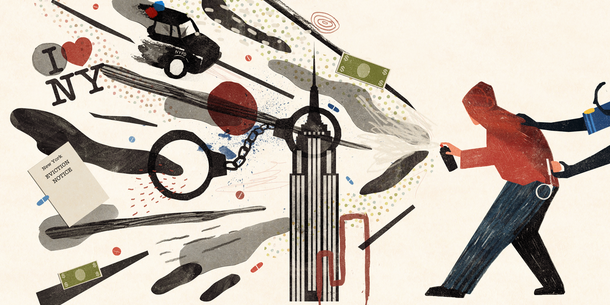
The Hidden Toll of New York City’s Misdemeanor System
Caseloads are shrinking but remain a burden on communities and government resources.
Myth vs. Reality: Trends in Retail Theft
Trump misleads about crime and public safety, again, criminal justice reforms aren’t driving rising crime, analyzing the fbi’s national crime data on 2022 — with an eye toward 2023 trends, crime trends in 2021–22: what we know so far, informed citizens are democracy’s best defense.

Hate Speech: Turning the tide
Facebook Twitter Print Email
Online hate speech might seem like an unstoppable tide, but strategies are being employed by governments, civil society, and individuals, to fight back. A new UN Podcasts series, UNiting Against Hate , explains how this dangerous phenomenon is being tackled worldwide.
The rise and impact of hate speech is being amplified, at an unprecedented scale, by new communications technologies, one of the most common ways of spreading divisive rhetoric on a global scale, threatening peace around the world.
According to leading international human rights organization, Minority Rights Group, one analysis records a 400-fold increase in the use of hate terms online in Pakistan between 2011 and 2021.
Being able to monitor hate speech makes can provide valuable information for authorities to predict future crimes or to take measures afterwards.
The Sentinel Project is a Canadian non-profit organization who’s Hatebase initiative monitors the trigger words that appear on various platforms and risk morphing into real-world violence. Chris Tucker, the executive director of the Sentinel Project, describes it as an “early warning indicator that can help us to identify an increased risk of violence”.
It works by monitoring online spaces, especially Twitter, looking for certain keywords, in several different languages, and then applying certain contextual rules to determine what was or was not most likely to be actually hateful content.
The database is available to many other organisations, from academia, NGOs, and the UN to individual researchers or civil society organisations that use the data for their own purposes.
‘Hate speech loads the gun, misinformation pulls the trigger’
For Mr Tucker, hate speech and misinformation are closely related: “ Hate speech loads the gun, misinformation pulls the trigger. And that's the kind of the relationship that we've come to understand over the years”. It's now theoretically possible for any human being who can access an Internet connexion to become a producer of that sort of content. And so that really does change things, and with a global reach.”
Another organization doing a similar kind of hate speech mapping is the Balkan Investigative Reporting Network.
The Network monitors every single trial related to war crime atrocities in Bosnia and Herzegovina and amounts to 700 open cases. In mapping hate it looks out for four different aspects; hateful narratives by politicians, discriminatory language, atrocity denial and actual incidents on the ground where minority groups have been attacked.
According to Dennis Gillick the executive director and editor of their branch in Bosnia and Herzegovina the primarily drivers of hate narratives in the country are populist, ethno-nationalist politicians.

“The idea behind the entire mapping process is to prove the correlation between political statements and political drivers of hate and the actual atrocities that take place,” says Mr Gillick.
The Network also want to prove that there is a lack of systematic prosecution of hate crimes and that the hateful language allows for this perpetuating circle of violence, with more discriminatory language by politicians and fewer prosecutions.
“As a result of hate speech, we have seen a rising number of far-right groups being mobilised,” explains Mr Gillick. “We are seeing fake NGOs or fake humanitarian groups being mobilized to spread hateful or discriminatory language, in order to expand this gap between the three different ethnic and religious groups in this country.”
The real-life consequences reported by the Network have included defacing or vandalizing mosques, or churches, depending on where a specific faith group is in the minority, and open calls to violence.
According to Mr. Gillick, this is fuelling the agenda of ethno-nationalist parties who want to cause divisions.

Changing the narrative
The way to combat this toxic environment, according to Mr. Gillick, is to create counter-narratives, disseminating accurate, factual information and stories that promote unity rather than division.
However, he acknowledges that this is a big ask. “It is difficult to counter public broadcasters, big media outlets with several hundred journalists and reporters with thousands of flights a day, with a group of 10 to 15 journalists who are trying to write about very specific topics, in a different way, and to do the analytical and investigative reporting.”
One organization that is trying to create counter-narratives is Kirkuk Now, an independent media outlet in Iraq, which is trying to produce objective and quality content on these groups and share it on social media platforms.
“Our focus is on minorities, internally displaced people (IDPs), women and children and, of course, freedom of expression,” says editor-in-chief of Kirkuk now, Salaam Omer. “We see very little content [about them] in the Iraqi media mainstream. And if they are actually depicted, they are depicted as problems,” Mr Omer says.
In Pakistan, where certain religious or faith-based groups are very vulnerable – in particular Ahmadis and Shia and then Hindus and Christians – Bytes for All, a human rights organization and think tank, launched an online to counter hate speech.
The campaign sought pledges from different organisations in Pakistan and the public to amplify the message. It was launched in 2021 on Twitter, where it became one of the top ten trends in the country.
The next phase involved creating video messages highlighting the plight of religious minorities in Pakistan, and university roadshows, to engage with young people.
The campaign targeted those aged between 15 and 35, who make up a majority of Pakistan’s population because, says Mr. Baloch, “they were actually the people who were using social media platforms, engaged in spewing hate speech, and exposed to hateful messages as well”.

Long-term solutions
There is a widespread belief that social media companies must be made responsible for the content they carry, and sanctioned if hate speech is spread on their platforms but, for Claire Thomas, deputy director of international NGO Minority Rights Group, this is not a long-term solution to the problem.
“What we saw in Myanmar was that when Facebook started to effectively police what was on its platform, the hate speech in Myanmar moved to Tik Tok. When you have multiple platforms with very large audiences, you're only as strong as your weakest link. When you think about where those platforms are based and what jurisdictions have control over them, our ability to make them police their own content effectively is really quite limited”.
In Ms. Thomas’s view, there should be more of a focus on educating people on the dangers and damaging effects of hate speech, and ensuring that they have greater access to balanced content.
“Now, I know that's a huge undertaking, and many people don't believe that it's possible”, she admits, “but for me, it's where we should try to put our efforts moving forward.”

‘Hate speech is profitable’
For Tendayi Achiume, a former independent UN human rights expert, more attention needs to be paid to the business models of social media companies. “A lot of the time people want to talk about content moderation, what should be allowed on these platforms, without paying close attention to the political economy of these social media platforms. And it turns out hate speech is profitable”.
Ms. Achiume argues that there is an urgent need to create spaces where people with different opinions can connect. At the same time, she says that a wider conversation needs to take place, regarding the way in which people are represented in the media and online.
“The ways in which our worlds are formed are really complex. And I think that the dialogues have to be positioned side by side with all of the other ways our worlds and our relationships are constructed.”
You can subscribe to our UN Podcasts series, UNiting Against Hate, here .
- Hate Speech
- UNiting Against Hate
Cookies on GOV.UK
We use some essential cookies to make this website work.
We’d like to set additional cookies to understand how you use GOV.UK, remember your settings and improve government services.
We also use cookies set by other sites to help us deliver content from their services.
You have accepted additional cookies. You can change your cookie settings at any time.
You have rejected additional cookies. You can change your cookie settings at any time.
- Crime, justice and law
- Criminal justice reform
Crime and justice speech
Transcript of the Prime Minister's speech to the Centre for Social Justice.

Two weeks ago, I spoke about this Government’s mission: to build an aspiration nation, where those who work hard can get on - and no one gets left behind. A stronger private sector. Welfare that works. Schools that teach.
Today I want to talk about another, critical, part of helping people to rise up and that is confronting the crime and bad behaviour that holds so many people down.
Go to some neighbourhoods in our country and you can feel that aspiration is dead. Children learning from a young age that life is about surviving, not thriving. Gang leaders as role models, drug dealers as career advisors. This doesn’t just matter to the elderly lady with five bolts on her door or the woman terrified to walk home in the dark. It matters to all of us.We will not rise as a country if we leave millions behind and write off whole communities.
So today I want to tell you about our approach to crime and justice - and the bold, unprecedented action we’re taking.
For many people, when it comes to crime I’m the person associated with those three words, two of which begin with ‘H’, and one of which is ‘hoodie’; even though I never actually said it. For others, I’m the politician who has argued frequently for tough punishment. So do I take a tough line on crime - or a touchy-feely one?
In no other public debate do the issues get as polarised as this. On climate change you don’t have to be in denial on the one hand or campaigning to get every car off the road on the other. Life isn’t that simple - so government policy isn’t that simple. And yet with the crime debate, people seem to want it black or white.
Lock ‘em up or let ‘em out. Blame the criminal or blame society. ‘Be tough’ or ‘act soft’.
We’re so busy going backwards and forwards we never move the debate on.
What I have been trying to do - in opposition and now in government - is break out of this sterile debate and show a new way forward: tough, but intelligent. We need to be tough because the foundation of effective criminal justice is personal responsibility.
Committing a crime is always a choice. That’s why the primary, proper response to crime is not explanations or excuses, it is punishment - proportionate, meaningful punishment.
And when a crime is serious enough, the only thinkable punishment is a long prison sentence. This is what victims - and society - deserve.
Victims need to know the criminal will be held to account and dealt with. And the ‘society’ bit really matters: retribution is not a dirty word, it is important to society that revulsion we all feel against crime is properly recognised. But punishment is what offenders both deserve and need, too. It says to them: “You are adults. Your actions have consequences.”
To treat criminals as victims - to say they had no choice - is to treat them like children. I firmly believe in their right to be treated as adults, with the responsibility to carry the consequences of their actions. But that’s not the whole story.
Just being tough isn’t a successful strategy in itself. Come with me to any prison in this country. There you’ll meet muggers, robbers, and burglars. But you’ll also meet young people who can’t read, teenagers addicted to drugs, people who’ve never worked a day in their whole lives.
These people need help so they can become part of the solution and not remain part of the problem. Recognising this isn’t soft, or liberal. It’s common sense.
We’ll never create a safer society unless we give people, especially young people, opportunities and chances away from crime. Prevention is the cheapest and most effective way to deal with crime - everything else is simply picking up the pieces of failure that has gone before. That’s part of what I mean by being intelligent as well as tough.
Not just saying what people want to hear, not playing to the gallery, but thinking hard about dealing with the causes of crime as well as the fall-out. And today, being intelligent has got to mean something else too. Achieving our ambitions when there is much less money than there used to be. The politics of the blank cheque are well and truly over.
The only way to achieve our ambitions is reform - radical, intelligent reform. So much of what went wrong in public services previously wasn’t because the money was missing, it was because the methods were wrong.
Top-down, bureaucratic, centralising. Judging every service by the money you put in rather than by the service you got out.
Our whole reform agenda is about turning this on its head.
Going from big government to big society; more choice, more competition, more openness. You see it in welfare providers paid by results and hospitals publishing their results online.
Some say, this is fine in welfare, fine with hospitals or fine with schools, but it won’t work in criminal justice. They think when it comes to keeping people safe, we’ve got to stick with the old, state-heavy approach. I believe that’s wrong.
It was the old approach that gave us police stuck behind desks filling in forms. It left us with the criminal justice system chasing ridiculous, unhelpful targets. And it left us with sky-high re-offending rates.
So we are bringing the logic of our public service reform agenda - transparency, payment by results, accountability - to transform criminal justice too. Because every part of that system needs change. Every part needs tough, but intelligent reform.And today, I want to explain how that’s working, right through the criminal justice system.
Let’s start with the police. I am profoundly grateful for the job our police officers do.
Years ago I used to run near Wormwood Scrubs every morning, and on my route there was a small stone monument. It said: ‘Here fell PS Christopher Head; PC Geoffrey Fox; PC David Wombwell, 12th August 1966’; and it was a daily reminder of this single truth: Police officers put on their uniform in the morning, kiss their children goodbye, and leave home having no idea about the dangers they might face.
Just a few weeks ago, Police Constables Nicola Hughes and Fiona Bone answered a 999 call without knowing where it would lead. And though PC Ian Dibell was off-duty, he too could not have imagined what he would come up against. These people were professional, brave, instinctively selfless. The same can be said of thousands of police officers who work on our streets, protecting our families day-in, day-out.
All of us owe them our thanks. All of us owe them our respect. And for all those who wear the uniform, it’s essential we get policing right. For years police officers were held back from doing the job they signed up for. We had targets like the ‘Offences Brought to Justice Target’ which encouraged police to chase easy wins.
I remember being out on the beat with a police officer in South Wales and he felt he had to book a boy for taking some money from his mum’s purse - rather than just a stiff talking to down at the nick. That’s what the culture and targets demanded. He knew it was ridiculous. Everyone knew it was ridiculous. But the targets forced his hand. And then there was the out-of-control bureaucracy.
Police officers spending almost half their shift on paperwork. So Theresa May is doing what so many Home Secretaries before her shied away from; fundamentally reforming the police and allowing them to get on with the tough, no-nonsense policing that they want and we want.
We’ve scrapped all the targets and given them a single, core objective - to cut crime.We’ve ended micro-management from Whitehall and returned professional discretion to local forces.
The notion that you had to fill out a form every time you stopped someone on the street - it’s gone.The endless looking up for instruction from some official in the Home Office - it’s over. And we’re going further; reforming police pay so it rewards crime-fighting, not just time served; and changing the leadership of the police too.
Our reforms are comprehensive, they are sophisticated - and they are working.
HMIC - the independent regulator - found that even at a time of tight budgets, the frontline is being protected. The number of neighbourhood police officers is up. Public satisfaction is up and crime is down. And if you like official figures, here they are.
Even though in real terms, central police spending cuts are around 20 per cent over four years, the latest figures - out at the end of last week - show that crime is down 6 per cent in the last year.
We can have tough policing when money is tight. And we’re bringing intelligent reform too. More accountability and transparency to put people in charge of policing. That’s what Police and Crime Commissioners are all about.
These are big, important elections coming up. It’s the first time they are being held. People are going to be voting in their own law and order champion: One person who sets the budgets; sets the priorities; hires and fires and Chief Constable; bangs heads together to get things done.
Some people are saying that no one’s bothered, that people aren’t interested in how we fight crime in their area. I don’t agree. I say look at crime maps and you come to a conclusion.
They said no one would care about transparency - but this website has had 500 million hits and counting.
The more high profile Police and Crime Commissioners get, the more engaged people will be - and the more pressure they’ll put on them to deliver tough local policing.
So my message for these elections is clear: If you want more tough policing, you can get it.If you want coppers who are on the beat, on your street, cracking down on anti-social behaviour, focussing on the things you care about, then don’t just talk about it, get out on November 15th and vote for it.Intelligent reform is happening at the national level too, with the National Crime Agency.
This is, if you like, Britain’s version of the FBI; recognising that there are some highly serious and organised crimes - human trafficking, money laundering, drug rings - that need the very best in terms of national co-ordination.
The next part of the criminal justice chain is prosecution and here again we need tough, but intelligent reform.
Too often the story’s the same. Someone gets arrested in the middle of the night. They’re bailed. It takes months before they appear in court. Then the day dawns and they’ve disappeared.
It’s why you get whole walls of police stations papered with pictures of people missing on bail. But we saw with the riots last summer it doesn’t have to be like that. Justice was swift and it was tough - and we want that all the time.
So we’re opening our courts earlier in the morning, in the evenings and weekends; because crime doesn’t keep normal working hours and neither should our criminal justice system. Already this is happening in 48 courts across the country.
Another innovation is video links between police stations and courts. If someone is arrested, the police can flick the switch on a monitor and get them in front of a magistrate in hours rather than months. So no bail to jump and no cracks to slip through.
And we need to toughen up the process in court too.
Today, once the verdict is passed, the defendant can stand in the witness box and make their case for a more lenient sentence; but too often the victim doesn’t get a say. The one person whose life has been torn apart is kept silent.
We want to give more victims the chance to be heard - to say how their life has been affected by the crime. And to back that up we will be appointing a new Victims’ Commissioner to make sure that victims’ voices are heard not just in court but right at the heart of government.
We need intelligent reform, too, to open up our whole justice system. Today it’s all too closed, opaque, unaccountable.
We hear second hand what sentence a criminal is getting. Wouldn’t it be better if we could hear and watch the result and the reasoning - directly?
So we are legislating to start televising the sentences that Judges deliver, so that people can hear why a decision has been reached directly from the Judge.
This will start in the Court of Appeal next year, and in the long-term we want to see this happening in the Crown Court too.
When those criminals are convicted, we need to make sure the punishment fits the crime. At every single level of sentence this Government is getting tougher.
Where fines used to be limited, with us magistrates will be able to impose unlimited fines. While the maximum compensation that criminals used to be liable for was £5000, we are uncapping it. If you cost someone £10,000 or £20,000, you should potentially have to pay that back.
And we are toughening up community sentences too.
Having a monthly meeting with your probation officer is hardly a punishment - so tomorrow in Parliament, something important is happening. We are laying amendments to the Crime and Courts Bill, making sure that every community sentence contains an element of punishment.
And this tough change is aligned with an intelligent reform.
We’re introducing new GPS satellite tagging that can pin-point exactly where offenders are. Making it literally impossible to duck under the radar.
If you’re on a community sentence, you will be supervised. You will be properly punished. And you will be forced to complete that sentence.Of course, for many crimes, only one form of punishment will do - and that is prison.
I want to be clear. I want to see people who ruin the lives of others - rapists, murderers, muggers - behind bars, and kept there for a long time.
I’ve always supported the principle of the life sentence.
You do something heinous - and for the rest of your life you are either in prison or on licence and subject to recall if you step out of line. I don’t believe that’s old-fashioned, it is vital, so we are increasing life sentences.
A new two strikes and you’re out rule means that if you commit two serious sexual or violent offences, you get life. Not at the Judge’s discretion - but mandatory life.
We are creating a new maximum sentence of life for those who import guns and death onto our streets. And we are looking too at toughening up knife sentences, because to me a caution for carrying a knife just does not seem enough.And for anyone sentenced to a spell in prison, there will be space in prison. There will be no arbitrary targets for our prison population.
The number of people behind bars will not be about bunks available, it will be about how many people have committed serious crimes.
Once they are inside prison, we’re toughening up the regime.
Too many prisoners see out their time by just lying on their beds for hours and hours, watching TV, doing nothing, learning nothing. So we are turning those prisons from places of idleness into places of work.
Like HMP Manchester, where prisoners work in the laundry or printing workshop for up to 40 hours a week. I saw myself today a number of programmes where it is possible for prisoners to work and earn.
This is about fit and able people getting out of their cells, having a structured day, earning respect and earning privileges. And when they earn money, we’ll be making them pay a chunk of it back to their victims too.
So on the punishment of criminals - I don’t want there to be any doubt that we will be tougher. But it’s not good enough just being tough, locking people up and thinking: that’s it.
We need to be intelligent too, about what happens to these people during and after their punishment. And here’s why.At the moment, six out of ten of those leaving jail are reconvicted within two years. If you think that figure’s depressing, try this.
While those in the care system account for just one per cent of children, a quarter of those in prison were in care as children.
Half the prison population say they have no qualifications. We have got to give these people a chance. Not just for their sake, but for ours. To stop that revolving door that sucks millions of pounds of public money in and spits thousands of unreformed offenders out.
We’ve tried just banging people up and it’s failed.
We’ve tried letting people out with £46 in their pocket and no help on the outside and guess what? They’ve gone back to their old ways.
So I’m not going to try and out-bid any other politician on toughness, saying “let’s just bang them up for longer, let’s have more isolation, and once they’re out they’re on their own.”
I say: let’s use that time we’ve got these people inside to have a proper positive impact on them, for all our sakes.
It’s not a case of ‘prison works’ or ‘prison doesn’t work’ - we need to make prison work. And once people are on the outside, we’ve got to stick with them, and give them proper support, because it’s not outer space we’re releasing these people into - it’s our streets, our towns, among our families and our children.
That’s why this Government is engaged in what can only be described as a rehabilitation revolution - led by the new Justice Secretary Chris Grayling.
His main, driving mission is this: to see more people properly punished, but fewer offenders returning to the system.
To achieve that, we’re saying to charities, companies and voluntary organisations - come and help us rehabilitate our prisoners. Give offenders new skills. Educate them.
If they’ve been in a gang, send a reformed gang member to meet them at the prison gates and take them under their wing. If they’re on drugs, try the latest techniques to get them clean.
Do whatever it takes to get these people back living decent, productive lives. We will pay you for that; but - and it is a major but - once again the payments will depend on results.
We’re going to pay people by the lives they turn around. Just think of what this means for the taxpayer.
When this Government came to power we were spending £40,000 a year (per person) just on banging people up. With payment by results, your money goes into what works: prisoners going straight, crime coming down, our country getting safer.
It’s such a good idea I want to put rocket boosters under it; indeed today I have an announcement to make.
By the end of 2015, I want to see payment by results spread right across rehabilitation. Of course, there will be some high-risk offenders for whom this is not appropriate but this approach should be the norm rather than the exception. And I want to see rehabilitation reach more of those who would benefit from it.
Today, rehab just goes to those who have been inside for a year or more. But that misses all those who go in for shorter sentences yet re-offend time and time again. So I want to look at making them part of the rehabilitation revolution too.
I’ve touched on all the parts of the criminal justice chain, from policing to prison but where we need the most intelligent reform is prevention: stopping all this happening in the first place.
The riots last summer were a stark warning that parts of our society are broken. They told us we need to intervene much earlier in the story, before the jail cell, before the robbery, before the petty theft.
As the CSJ has argued so passionately, having a strong family is absolutely vital to people’s life chances and we believe that too. Strengthening families, strengthening partnerships, strengthening marriages, encouraging commitment are all part of our agenda.It’s why we’re shaking up fostering and adoption, ending the scandal that left children languishing in the care system for years.
It’s why we’ve re-focussed Sure Start centres - with more parenting classes, reaching out to the parents who really need support. And it’s why we’re bringing new help for the most 120,000 troubled families, the ones that live in a constant cycle of poverty, addiction and hopelessness.
For these families we’re bringing in professional, targeted help to get them into work, get the kids in school, help bring some order to their chaotic lives. And prevention means something else.
Some of those rioters last summer showed a complete indifference to the rules. We need to make clear to young people that respect is not something you can just expect, it’s something you earn.
So we’re bringing real discipline to schools - with teachers having more power to use reasonable force and take control of their classroom. And crucially, we’re focusing on those children who have been excluded from school.
Some Pupil Referral Units have been little more than a nursery class before the juvenile detention centre. So we’re turning failing PRUs into Academies, just as we are with failing schools, so that powerful, effective sponsors can bring the same radical improvements to them, as to some of the most challenged schools in the country.
On the other side of the coin we’re doing more to encourage good behaviour. National Citizen Service is about showing young people that they have responsibilities as well as rights, that they have a stake in our society.
Tens of thousands took part this year, and it is a personal passion of mine that in the coming years this should become a permanent part of the landscape in our country, a rite of passage that every teenager in every school goes through.
And all this fits into the bigger, broader picture of what this Government’s doing.
Whether it’s changing welfare so there’s no more something for nothing or putting the law on the side of victims and not criminals, we are re-scoring that line between right and wrong; between good behaviour and bad.
So I don’t want there to be any doubt how serious this Government is about law and order. Yes, we are tough - but we’re being intelligent too.
Not just giving police more power but giving people more power.
Not just speeding up our courts but opening them up.
Not just punishing but rehabilitating too.
By taking this approach we can cut crime even while cutting budgets. We can show law-abiding people that finally, the system is on your side.
And we can go to all those communities where life felt like a dead-end. Where crime felt inevitable; and we can restore hope and opportunity there too.
This is our goal. An aspiration nation. Where no one is left behind. And we are absolutely determined to achieve it.
Related content
Is this page useful.
- Yes this page is useful
- No this page is not useful
Help us improve GOV.UK
Don’t include personal or financial information like your National Insurance number or credit card details.
To help us improve GOV.UK, we’d like to know more about your visit today. We’ll send you a link to a feedback form. It will take only 2 minutes to fill in. Don’t worry we won’t send you spam or share your email address with anyone.
Advertisement

- Previous Article
- Next Article
The Dreadful Word: Speech Crime and Polite Gentlemen in Massachusetts, 1690–1776 by Kristin A. Olbertson
Jeannine DeLombard is professor of English at the University of California, Santa Barbara. She is the author of In the Shadow of the Gallows: Race, Crime, and American Civic Identity and Slavery on Trial: Law, Abolitionism, and Print Culture. She is currently working on a pair of book projects that examine the democratization of dignity in nineteenth-century US law and literature.
- Cite Icon Cite
- Open the PDF for in another window
- Permissions
- Article contents
- Figures & tables
- Supplementary Data
- Peer Review
- Search Site
Jeannine DeLombard; The Dreadful Word: Speech Crime and Polite Gentlemen in Massachusetts, 1690–1776 by Kristin A. Olbertson. The New England Quarterly 2023; 96 (4): 363–365. doi: https://doi.org/10.1162/tneq_r_01006
Download citation file:
- Ris (Zotero)
- Reference Manager
Hate speech. Cancel culture. Civility. Safe spaces. Trigger warnings. Microaggressions. Pronouns. Gag orders. Doxxing. Parental controls. Twitter and Facebook suspensions. Misinformation. Disinformation. Fake news. Alternative facts. The dark web. TikTok bans. Hot mics. Discord leaks. Oversharing. Earmuffs.
American law and culture is preoccupied with speech, its effects, and its limits. As historian Kristin Olbertson documents in her delightfully readable new book, this preoccupation long predates the First Amendment—at least for one segment of the population. The Dreadful Word: Speech Crime and Polite Gentlemen in Massachusetts, 1690–1776 argues that white, male colonial elites asserted and maintained their power and authority by policing the speech of their lower-status counterparts. They also sought to control the speech of women and Black people, and they were torn between viewing Indigenous speech as noble or as just plain savage. But it was the noise, threats, cursing, contempt, perjury, false reports, and defamation of white, plebeian men that consistently prompted criminal prosecutions in Massachusetts. By criminalizing that speech, Olbertson contends, colonial gentlemen sought to establish themselves as part of “the new polite-ocracy” of the broader transatlantic British empire (54).
The newness of this genteel social order lay in its redefinition of the nature of transgressive speech. Olbertson maintains that early modern and Puritan “concerns about speech as sin were joined by, and often superseded by, concerns about speech as fundamentally impolite ” (20). If sinful speech threatened hierarchies of both gender and religion (think Anne Hutchinson), then impolite speech illuminated socio-economic stratification among colonial Englishmen. Olbertson finds that most speech crime prosecutions involved violations regarding rules of deference by the lower and middling sorts toward their social “betters,” as well as occasional breaches of courtesy among elites. Seldom were members of the lower orders held accountable for transgressive speech among themselves. Whereas historians such as Cornelia Dayton and Terri L. Snyder have demonstrated the important legal and cultural role of colonial women's speech, Olbertson suggests that decreasing prosecutorial scrutiny of their illicit speech reflects the declining discursive relevance of women in the new, genteel order. Gentlemen defined themselves and consolidated power against women and lower-status men by associating polite, civil speech with the ability to govern themselves and their households. As colonial elites became less worried about the ability of vocal utterances to cause actual harm to individuals through curses, witchcraft, threats, or verbal abuse, they increasingly emphasized the potential for speech to challenge civil authority and disrupt the peace, whether by spreading false reports, defaming prominent men, displaying contempt for legal officials and processes, or simply by making undue noise, profanely swearing, or lying. None of these utterances were unique to men of the lower orders. The difference was that their work, socializing, and family life tended to occur in quasi-public spaces where they were subject to more scrutiny, and therefore censure, by higher-ups. Like the coercive physical violence that some householders routinely exercised against their wives, children, servants, and enslaved people, the speech of elite men was shielded from criminalization by its privacy. When elite men did want to make their potentially defamatory speech public, Olbertson astutely observes, they could dress it up as satire to avoid prosecution.
Olbertson's carefully researched study advances scholarship in several areas of legal humanities inquiry. Her analysis of transgressive speech as one pretext for “policing the low” (56) deepens our understanding of the broader exercise of the police power, as theorized by Markus Dubber. In early American contexts, this preservation of the king's, the people's, or the public peace has been analyzed by William Novak, Christopher Tomlins, Laura Edwards, Bryan Wagner, Sal Nicolazzo, and Kate Masur. Olbertson's attention to ritualized ceremonies of deference and legal-cultural anxieties about the artificiality, dishonesty, and dissemblance requisite to displays of politeness invites a consideration of early American law as performance, in conversation with Julie Stone Peters' work on legal theatricality in Europe.
Much as the Puritan construction of speech-as-sin gave way to the cosmopolitan, imperial understanding of speech-as-impoliteness, the American Revolution prompted a re-evaluation of illicit speech—this time as disloyalty. Political and popular censure of disloyal speech had the leveling effect of authorizing and empowering lower-status men to speak out against royal officials and other hitherto powerful polite gentlemen. In the nineteenth century, the elite culture of sensibility, civility, and credibility was gradually succeeded by a middle-class culture of respectability that tended to be enforced through norms rather than law. Thus, even as more and more Americans could retreat to private spaces of their own, Olbertson suggests, they found “no similar shelter from the supervisory gaze of the market” in an industrial capitalist culture where success often “meant . . . offering oneself up for economic valuation and sale of sorts, and [where] managing one's speech appropriately was simply another means of product promotion” (285). The world of likes, influencers, and virtue signaling would not be far behind.
Email alerts
Related articles, related book chapters, affiliations.
- Online ISSN 1937-2213
- Print ISSN 0028-4866
A product of The MIT Press
Mit press direct.
- About MIT Press Direct
Information
- Accessibility
- For Authors
- For Customers
- For Librarians
- Direct to Open
- Open Access
- Media Inquiries
- Rights and Permissions
- For Advertisers
- About the MIT Press
- The MIT Press Reader
- MIT Press Blog
- Seasonal Catalogs
- MIT Press Home
- Give to the MIT Press
- Direct Service Desk
- Terms of Use
- Privacy Statement
- Crossref Member
- COUNTER Member
- The MIT Press colophon is registered in the U.S. Patent and Trademark Office
This Feature Is Available To Subscribers Only
Sign In or Create an Account

An official website of the United States government
Here's how you know
Official websites use .gov A .gov website belongs to an official government organization in the United States.
Secure .gov websites use HTTPS A lock ( Lock A locked padlock ) or https:// means you’ve safely connected to the .gov website. Share sensitive information only on official, secure websites.
- The Attorney General
- Organizational Chart
- Budget & Performance
- Privacy Program
- Press Releases
- Photo Galleries
- Guidance Documents
- Publications
- Information for Victims in Large Cases
- Justice Manual
- Business and Contracts
- Why Justice ?
- DOJ Vacancies
- Legal Careers at DOJ
- Our Offices
Deputy Attorney General Lisa Monaco Delivers Keynote Remarks at the American Bar Association’s 39th National Institute on White Collar Crime
San Francisco , CA United States
Remarks as Prepared for Delivery
Thank you, Ray, for that very kind introduction — and for your continued leadership of the Institute.
I appreciate the invitation to speak again at this gathering and to give the Larry Barcella Memorial Lecture. My memories of Larry are from my time as a newly-minted AUSA in the D.C. U.S. Attorney’s Office — and as an even newer member of the Edward Bennett Williams Inn of Court. More than once, I witnessed Larry pointedly critique a DOJ official about the wisdom — or lack thereof — of the latest corporate enforcement policy.
Today, I’ll provide an update on our efforts and tell you what’s top of mind as we confront today’s corporate enforcement landscape.
And in honor of Larry, I’ll no doubt give you something to critique.
The bottom line up front is that we’ve been executing on the priorities we set at the beginning of the administration. And our approach is straightforward. We identify the most serious wrongdoers — individual and corporate — and focus our full energy on holding them accountable. Those who break the law pay the price.
Accountability promotes fairness, drives deterrence, and fosters respect for the rule of law. At its best, it should also encourage investments in building a culture of compliance. That way, we’re not simply bringing cases — we’re also building an enforcement framework that promotes good corporate citizenship.
This approach benefits everyone. Consumers, investors, employees, and shareholders — of course. But also all Americans, who deserve — who demand — a criminal justice system that holds accountable those who break the law, from the street corner to the corner office.
So, we are:
- Holding individuals accountable for corporate misconduct;
- Demanding stiffer penalties for corporate recidivists;
- Using a mix of carrots and sticks to promote responsible corporate citizenship; and
- as we do, we’re evolving to meet new and emerging threats — threats from disruptive technologies — including one you might have heard of: artificial intelligence.
Our first priority has been — and will continue to be — individual accountability. Companies can only act through individuals.
The rule of law demands that those most culpable for a company’s misconduct are the ones being charged, prosecuted, and convicted.
From the beginning, we promised to follow every corporate case up the company’s org chart — no matter where the evidence took us. We also asked prosecutors to be bold —and they’ve done so.
In just the last few months, Justice Department agents and prosecutors have secured convictions of the CEOs of the world’s two largest cryptocurrency platforms — FTX and Binance.
That’s on top of convictions, in the past few years, of the chief executive officer and chief operating officer of Theranos, two managing directors of Goldman Sachs, and dozens of executives across a range of industries, including investment firms, health care companies, and defense contractors – all charged and convicted of federal crimes.
This is challenging work. As we investigate more complex schemes, in more corners of the globe, with more evidence to gather and disclose, we’re inevitably devoting more resources to each individual case.
And in part because we’re bringing serious charges, with significant penalties, against senior executives, we’re also taking more cases to trial.
We’re driving real accountability.
We’re also delivering consequences for corporate recidivists. A little over a year ago, we made clear that we would account for a company’s criminal, civil, and regulatory history when considering the appropriate resolution.
Of course, not all prior conduct is created equal, and not all companies are similarly situated. But we apply the same principle to companies that we always have to individuals.
A history of misconduct matters.
After all, penalties exist, in part, to deter future misconduct. They’re not the cost of doing business. So when a company breaks the law again — and it’s clear the message wasn’t received — we need to ratchet up the sanctions.
Take Ericsson. When it breached its 2019 DPA, we refused to resolve the case in 2023 for anything less than a corporate guilty plea.
Or Teva Pharmaceuticals. In 2016, it resolved an FCPA violation with a DPA. When the company faced investigation for price fixing in 2023 — we demanded a more substantial penalty. For the first time ever, we made specific performance a part of the remedy: we required the company to sell off an entire product line — a novel approach tailored to the company’s unique circumstances.
If your company has had a recent brush with the law, now is the time to invest — and reinvest — in your compliance programs.
I can assure you the price of committing another violation will be far higher than the cost of preventing one.
But the throughline for our enforcement framework is rooted in the time-honored understanding that people — and corporations — respond to incentives.
It’s human nature, and it’s what makes the business world spin.
I understand the challenges and tradeoffs that your clients face when managing an organization with thousands of employees, complex operations, and a Fortune 100-level budget. I know because I’m the COO of one such organization.
Companies fulfill their fiduciary duty to shareholders when they support behavior that rejects wrongdoing for the sake of profit. When they follow the rules and anticipate problems. And when they reward pro-compliance — as well as pro-profit — behavior.
So, we’ve implemented policies to incentivize investing in a culture of compliance — before misconduct happens.
Take, for example, our approach to clawbacks. Nothing focuses the mind like the prospect of a pay cut. That’s why the Criminal Division has been providing a dollar-for-dollar credit to companies that claw back or withhold compensation from culpable employees. It ensures that the actual wrongdoers are actually paying for their misconduct.
We’ve also implemented new Department policies on voluntary self-disclosure. Those policies are consistent, transparent, and predictable.
We want to make the math easy. When a business discovers that its employees broke the law, the company is far better off reporting the violation than waiting for DOJ to discover it.
Now, when DOJ does discover the violation, the company can still reduce its exposure by proactively cooperating in our investigation.
But I want to be clear: no matter how good a company’s cooperation, a resolution will always be more favorable with voluntary self-disclosure.
We’ve structured our Voluntary Self Disclosure (VSD) programs to encourage companies to take responsibility for misconduct within their organizations. And we’ve conditioned benefits on the company’s willingness to step up and own up — requiring it to disgorge profits, upgrade compliance systems, and cooperate in investigations of culpable employees.
That’s good for everyone, especially general counsels and compliance officers.
We want to empower them to make the business case for investing in compliance. And when they do, they can point to our policies.
Early reports on this work are promising. We directed all components and U.S. Attorneys to implement self-disclosure programs, and we’re seeing innovation — as you’d expect from our talented women and men.
Offices are starting to explore variations. At least two U.S. Attorney’s Offices — led by the Southern District of New York and recently the Northern District of California — are piloting initiatives that are, in essence, voluntary self-disclosure programs for individuals.
Both are offering non-prosecution agreements to certain categories of at-fault individuals who self-disclose wrongdoing and cooperate against other, more culpable targets. We look forward to evaluating the results of these pilots and determining what’s to come later this year.
As we work to encourage more reporting, we also want to engage traditional corporate whistleblowers — the people not involved in the wrongdoing but who discover misconduct by others and blow the whistle.
Now, whistleblowing can take many forms.
Take corporate acquisitions. Last October, we announced a disclosure program to incentivize companies engaged in acquisitions to surface misconduct in their due diligence and report it. That way, we identify wrongdoing and the wrongdoers.
In these situations, the acquiror hasn’t done anything wrong — and we want it to report the acquiree’s misconduct, so we can prosecute the responsible individuals, make victims whole, and rectify problems.
To be clear, this policy does not limit the Department’s robust antitrust enforcement efforts. In fact, it complements them by ensuring that misconduct doesn’t get swept under the rug.
So, I’m pleased to say that, today, we’ve codified this policy in the Department’s Justice Manual, including the key provision that it only applies to bona fide, arms-length transactions.
But we recognized there’s another way we can encourage individuals to report misconduct: by rewarding whistleblowers. And how do we do that? Money.
Going back to the days of “Wanted” posters across the Old West, law enforcement has long offered rewards to coax tipsters out of the woodwork. And today, we’re announcing a program to update how DOJ uses monetary rewards to strengthen our corporate enforcement efforts.
Ever since Dodd-Frank created whistleblower programs at the SEC and the CFTC, those agencies have received thousands of tips, paid out many hundreds of millions of dollars, and disgorged billions in ill-gotten gains from corporate bad actors.
Yet both programs, and similar ones at IRS and FinCEN — by their very nature — are limited in scope. They only cover misconduct within their agencies’ jurisdictions. And qui tam actions, which offer their own whistleblowing incentives, are only available for fraud against the government.
These programs have proven indispensable — but they resemble a patchwork quilt that doesn’t cover the whole bed. They simply don’t address the full range of corporate and financial misconduct that the Department prosecutes.
So, we are filling these gaps.
Under current law, the Attorney General is authorized to pay awards for information or assistance leading to civil or criminal forfeitures. In the past, we’ve used this authority here and there — but never as part of a targeted program.
Now’s the time to expand our use of this tool in corporate misconduct cases and apply it to reward whistleblowing.
So we’re planning something new: a DOJ-run whistleblower rewards program. Today, we’re launching a 90-day sprint to develop and implement a pilot program, with a formal start date later this year.
The premise is simple: if an individual helps DOJ discover significant corporate or financial misconduct — otherwise unknown to us — then the individual could qualify to receive a portion of the resulting forfeiture.
Over the next several months, we’ll fill out the particulars, and Acting Assistant Attorney General Nicole Argentieri will discuss that process in greater detail tomorrow. But we’ve already established some basic guardrails. For example, we’d offer payments:
- Only after all victims have been properly compensated;
- Only to those who submit truthful information not already known to the government;
- Only to those not involved in the criminal activity itself;
- And only in cases where there isn’t an existing financial disclosure incentive — including qui tam or another federal whistleblower program.
Used proactively, this program will fill gaps. It will create new incentives for individuals to report misconduct to the Department. And it will drive companies to invest further in their own internal compliance and reporting systems.
Now, for all the potential whistleblowers listening today, you might be wondering what to look out for. While we’ll always accept information about violations of any federal law, we’re especially interested in information about:
- Criminal abuses of the U.S. financial system;
- Foreign corruption cases outside the jurisdiction of the SEC, including FCPA violations by non-issuers and violations of the recently enacted Foreign Extortion Prevention Act; and
- Domestic corruption cases, especially involving illegal corporate payments to government officials.
Maybe you work — or your client does — at a fast-growing private startup here in the Bay Area, and you discover the company's been paying bribes to get regulatory approvals and doctoring the books to hide the payments. If you come forward, you could get paid as part of the recovery from that criminal case.
Or maybe you’ve got a client at a private equity firm, and she discovers the CFO is forging underlying loan documents. Once again, if your client reports it, a portion of the recovery could be hers.
As we take this on, it’s important to underscore a central aspect of all whistleblower programs. To be eligible for a reward, you have to tell us something we didn’t already know. You have to be the first in the door.
Now this is key. Why? Because the same rule applies to the Department’s VSD programs.
When everyone needs to be first in the door, no one wants to be second—regardless of whether they’re an innocent whistleblower, a potential defendant looking to minimize criminal exposure, or the audit committee of a company where the misconduct took place.
These incentives reinforce each other and create a multiplier effect, encouraging both companies and individuals to tell us what they know as soon as they know it.
This helps us build the strongest criminal cases against the most culpable wrongdoers. It helps us impose the most significant penalties on those who most deserve it. And it helps us use our carrots to wield larger sticks.
With these announcements, our message to whistleblowers is clear: the Department of Justice wants to hear from you. And to those considering a voluntary self-disclosure, our message is equally clear: knock on our door before we knock on yours.
Today, there are more doors for us to knock on than ever. The global threat landscape is changing rapidly — and, as always, we’re evolving to meet new and emerging threats, including those from the malicious use of disruptive technologies.
And now, the ultimate disruptive technology — artificial intelligence — looms larger than ever.
Last month, in a speech at Oxford University, I laid out the Department’s focus on AI and its potential impact on our justice system.
All new technologies are a double-edged sword — but AI may be the sharpest blade yet. It holds great promise to improve our lives — but great peril when criminals use it to supercharge their illegal activities, including corporate crime.
While we work to responsibly harness the benefits of AI, we are alert to its risks, and we will be using our tools in new ways to address them.
To be clear:
Fraud using AI is still fraud.
Price fixing using AI is still price fixing.
And manipulating markets using AI is still market manipulation.
You get the picture.
We have long used sentencing enhancements to seek increased penalties for criminals whose conduct presents especially serious risks to their victims and to the public at large — like increased penalties for criminals that use firearms or other dangerous weapons.
The same principle applies to AI. Where AI is deliberately misused to make a white-collar crime significantly more serious, our prosecutors will be seeking stiffer sentences — for individual and corporate defendants alike.
And compliance officers should take note. When our prosecutors assess a company’s compliance program — as they do in all corporate resolutions — they consider how well the program mitigates the company’s most significant risks. And for a growing number of businesses, that now includes the risk of misusing AI.
That’s why, going forward and wherever applicable, our prosecutors will assess a company’s ability to manage AI-related risks as part of its overall compliance efforts.
To that end, I have directed the Criminal Division to incorporate assessment of disruptive technology risks — including risks associated with AI — into its guidance on Evaluation of Corporate Compliance Programs.
I recently also announced a new initiative called “Justice AI” — a series of convenings with stakeholders across industry, academia, law enforcement, and civil society — to address the impacts of AI.
I will convene the first of those Justice AI discussions today here in the Bay Area. And we will use these conversations to inform the Department’s AI policy on a range of fronts, including the corporate compliance issues I’ve asked the Criminal Division to consider.
Now, in the coming days, your clients may want the scoop on what we’ve discussed today.
So before I wrap up, here’s the Cliffs Notes version.
First, we’re continuing to execute on our core strategy: invest the most significant resources in the most serious cases; hold individuals accountable; and pursue tough penalties for repeat offenders.
Second, we’re using carrots and sticks to encourage companies to step up and own up and report misconduct to the government. With a first-in-the-door strategy, we’re making clear that neither companies nor individuals can afford to sit on evidence of wrongdoing.
Third, we’re designing our own whistleblower rewards program, as part of our broader effort to fill gaps and innovate in this space. Stay tuned.
And finally, we’re applying DOJ tools to new, disruptive technologies — like addressing the rise of AI through our existing sentencing guidelines and corporate enforcement programs.
I hope I’ve given you a clear picture of our enforcement priorities and what to expect in the coming months. And I trust I’ve also given you plenty of fodder for discussion in the days to come.
Every day, we’re working to ensure the Department of Justice lives up to its promise for the American people.
Whether we are deploying old school methods like flipping cooperators or responding to the newest game-changing technology, the women and men of the Justice Department will continue to be unrelenting in our work to enforce the laws that protect jobs, guard savings, and maintain faith in our economic system.
Thank you for having me today and thank you for being here.
Related Content
Thank you, Dawn, for that very kind introduction — and thank you all for welcoming me and for being here.

A former correctional officer at the Federal Correctional Institution Dublin (FCI Dublin), where he supervised prisoners, was sentenced to 72 months in prison for sexually abusing five inmates at FCI...
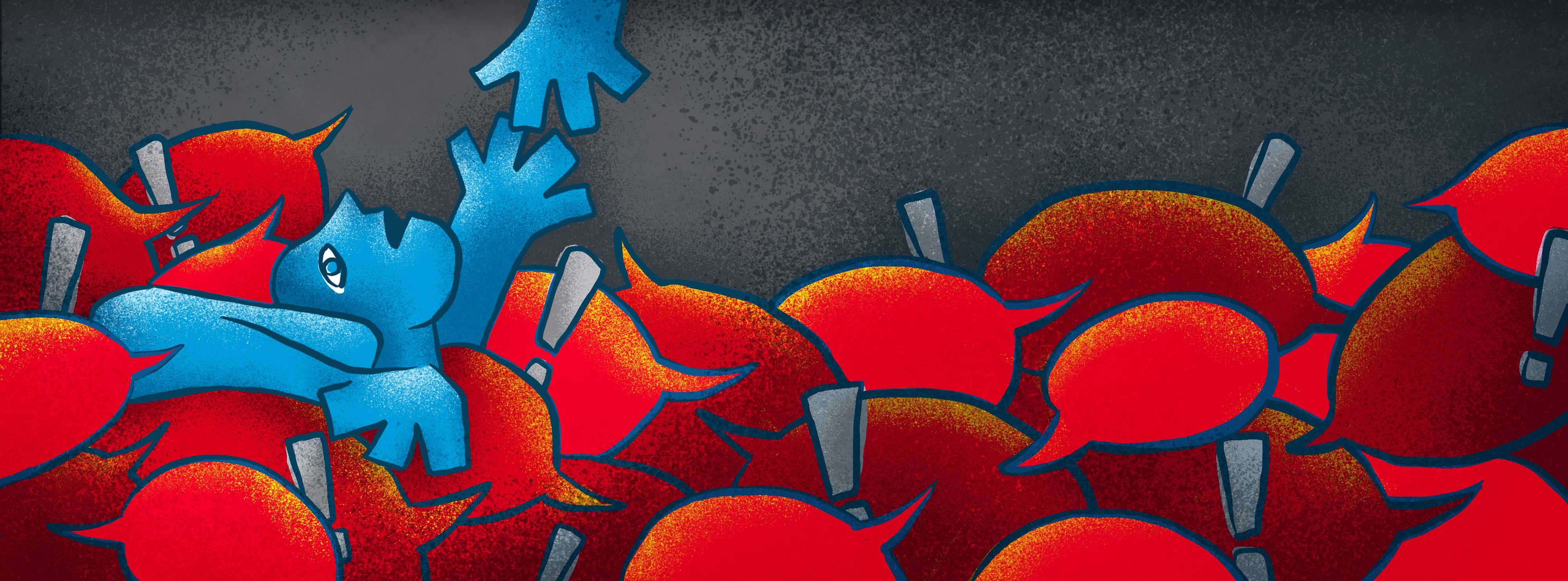
Hate speech is rising around the world
Hate speech incites violence and intolerance. The devastating effect of hatred is sadly nothing new. However, its scale and impact are now amplified by new communications technologies. Hate speech – including online – has become one of the most common ways of spreading divisive rhetoric on a global scale, threatening peace around the world.
The United Nations has a long history of mobilizing the world against hatred of all kinds to defend human rights and advance the rule of law . The impact of hate speech cuts across numerous UN areas of focus, from protecting human rights and preventing atrocities to sustaining peace, achieving gender equality and supporting children and youth.
Because fighting hatred, discrimination, racism and inequality are among its core principles, the United Nations is working to confront hate speech at every turn. This mission is enshrined in the UN Charter , in international human rights frameworks and in global efforts to achieve the Sustainable Development Goals .
Hate speech is an alarm bell - the louder it rings, the greater the threat of genocide. It precedes and promotes violence.” ANTÓNIO GUTERRES , United Nations Secretary-General, 2023

UN Strategy and Plan of Action on Hate Speech

In response to the alarming trends of growing xenophobia, racism and intolerance, violent misogyny, antisemitism and anti-Muslim hatred around the world, UN Secretary-General António Guterres launched the United Nations Strategy and Plan of Action on Hate Speech on 18 June 2019. This first UN-wide initiative designed to tackle hate speech provides a road map on how the Organization can support and complement States' efforts. The strategy emphasizes the need to counter hate holistically, while respecting freedom of opinion and expression, and to collaborate with relevant stakeholders, including civil society organizations, media outlets, tech companies and social media platforms. In 2021, the General Assembly adopted a resolution proclaiming 18 June as the International Day for Countering Hate Speech.
How to deal with hate speech
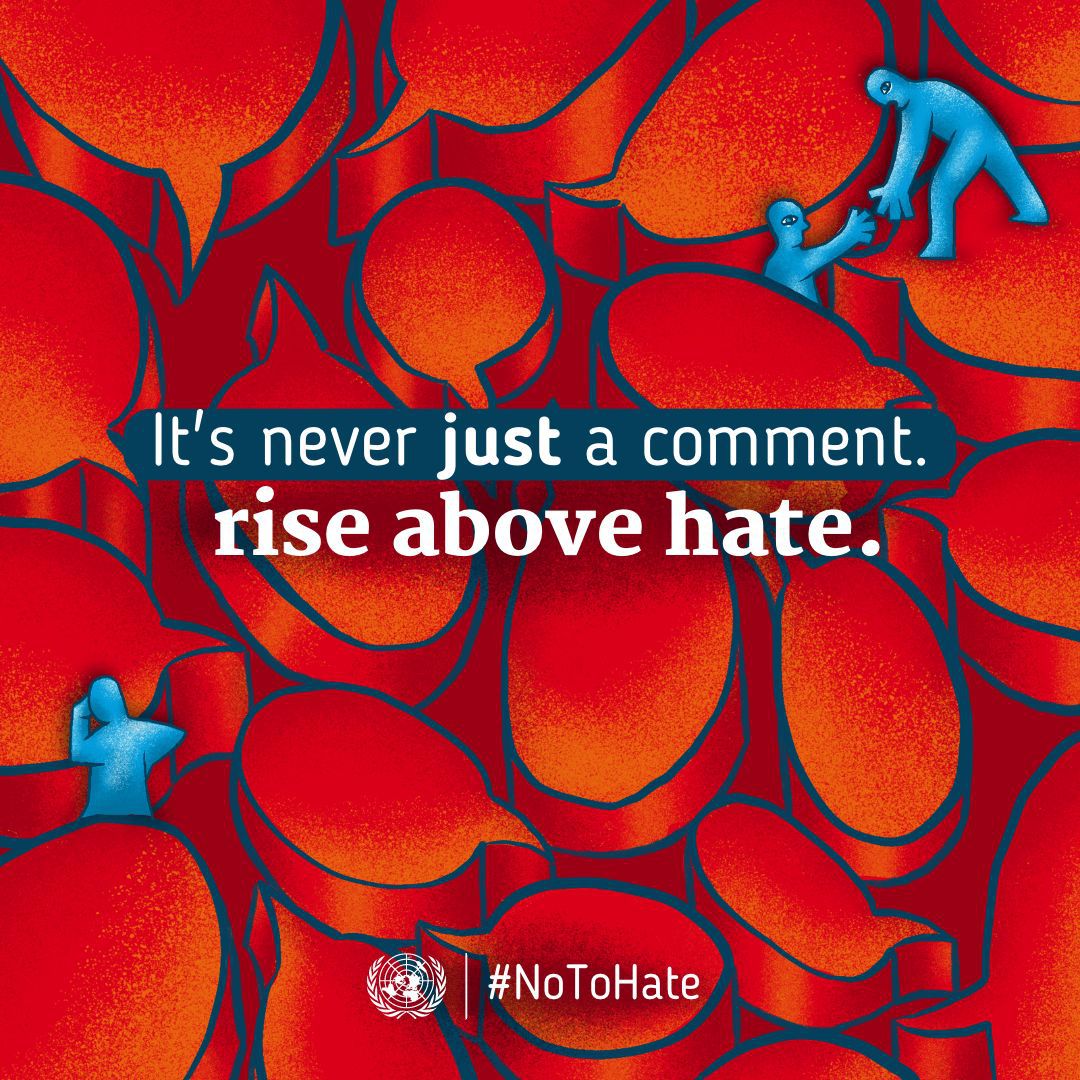
It can sometimes be hard to assess when a comment is meant as hate speech – especially when expressed in the virtual world. It can also feel overwhelming to try to deal with obviously hateful content. However, there are many ways you can take a stand, even if you are not personally the victim of hate speech. And you can make a difference.
You can start by downloading our fact sheets . Use them to educate yourself and others.
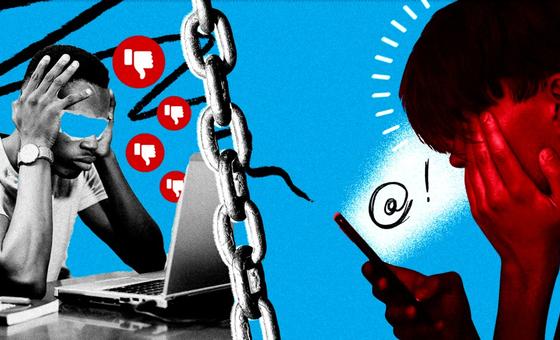
Marking an important milestone in the fight against hate speech, the UN General Assembly adopted a resolution on “promoting inter-religious and intercultural dialogue and tolerance in countering hate speech”. The resolution proclaims 18 June as the International Day for Countering Hate Speech , which will be marked for the first time in 2022.
Can hate speech ignite genocide?

ALA User Menu
- ALA Websites
Breadcrumb navigation
- Contact Congress
Hate Speech and Hate Crime
- Share This Page
Hate Speech
There is no legal definition of "hate speech" under U.S. law, just as there is no legal definition for evil ideas, rudeness, unpatriotic speech, or any other kind of speech that people might condemn. Generally, however, hate speech is any form of expression through which speakers intend to vilify, humiliate, or incite hatred against a group or a class of persons on the basis of race, religion, skin color sexual identity, gender identity, ethnicity, disability, or national origin. 1
In the United States, hate speech is protected by the First Amendment. Courts extend this protection on the grounds that the First Amendment requires the government to strictly protect robust debate on matters of public concern even when such debate devolves into distasteful, offensive, or hateful speech that causes others to feel grief, anger, or fear. (The Supreme Court's decision in Snyder v. Phelps provides an example of this legal reasoning.) Under current First Amendment jurisprudence, hate speech can only be criminalized when it directly incites imminent criminal activity or consists of specific threats of violence targeted against a person or group.
For the purposes of collecting statistics, the FBI has defined a hate crime as a “criminal offense against a person or property motivated in whole or in part by an offender’s bias against a race, religion, disability, sexual orientation, ethnicity, gender, or gender identity,” including skin color and national origin. Hate crimes are overt acts that can include acts of violence against persons or property, violation or deprivation of civil rights, certain "true threats," or acts of intimidation, or conspiracy to commit these crimes. The Supreme Court has upheld laws that either criminalize these acts or impose a harsher punishment when it can be proven that the defendant targeted the victim because of the victim's race, ethnicity, identity, or beliefs. A hate crime is more than than offensive speech or conduct; it is specific criminal behavior that ranges from property crimes like vandalism and arson to acts of intimidation, assault, and murder. Victims of hate crimes can include institutions, religious organizations and government entities as well as individuals.
For Libraries
All libraries should be welcoming and inclusive spaces for all library users, library workers, and members of the community. Each library user has the the right to use the library free of discrimination and loss of individual safety; library workers also have a right to a safe workplace free from bias and discrimination. Hateful conduct should never be tolerated in the library. A library's policies on user behavior and workplace safety and conduct should address hateful conduct as a violation of those policies. Libraries should be prepared to prosecute, or support prosecution, of all bias-motivated criminal acts and provide aid and support to victims of such crimes and those targeted by hateful conduct.
Responding to Hateful Speech and Hate Crime
Reports of hateful speech and hate crimes in libraries is escalating in a time when reported hate crimes are at an all time high . The American Library Association’s Office for Intellectual Freedom and Office for Diversity, Literacy and Outreach Services have prepared a white paper, Hateful Conduct in Libraries: Supporting Library Workers and Patrons to provide additional guidance for librarians struggling with issues of hate and intolerance.
In responding to hate speech and hateful conduct, public libraries should be aware that they operate under the First and Fourteenth Amendments and the associated court opinions governing access to the library as a designated public forum. There is an established body of case law holding that public libraries are a type of public forum, and that every person using a public library has a First Amendment right to access, use and take advantage of all the services the public library has to offer, without regard to the person's background, identity or economic status or their beliefs, opinions, or views. This is consistent with ALA's support for intellectual freedom, as expressed in ALA's Library Bill of Rights , which states that "a person’s right to use a library should not be denied or abridged because of origin, age, background, or views."
Thus, under law, public libraries cannot discriminate against a library user or deny the user access to library resources and services based upon their views or beliefs. This principle applies to the provision of access to books, media, programming and the internet as well as publicly available meeting room space.
Knowing that the presence and activities of some groups in public libraries, while constitutionally protected, can cause fear and discomfort in some library users and staff, there are some strategies public libraries can employ to embrace their role as welcoming, inclusive, and responsible spaces that go beyond the adoption and enforcement of user behavior policies.
One strategy is to forgo the provision of public meeting room spaces for all users, allowing the library to fully control the messaging that takes place in its building and spaces. A second strategy is to employ the library's right under the First Amendment to speak in its own voice as a government agency about matters of importance. The library can exercise its prerogative to convey strong messaging that counters messages of bias, hatred and discrimination. Such messaging can be proactive, affirmative, and ongoing as well as a reaction to an incident of hateful conduct or speech. Libraries, could, for example, mount prominent signage throughout the library and in meeting rooms announcing its support for equality, diversity, and inclusion, and its belief in the human dignity of all persons, especially those in marginalized communities. Library-sponsored programming and services can echo this message.
Both the Office for Intellectual Freedom and the Office for Diversity, Literacy, and Outreach Services are available to provide assistance, counsel and support to libraries considering these strategies.
ALA Resources, Statements and Policies
Resource Guide for Library Safety and Preparedness (2023)
Equity, Diversity, Inclusion: An Interpretation of the Library Bill of Rights (2017)
Libraries Respond: Hate Crimes in Libraries (2017)
Libraries Respond: Hate Groups and Violence in Libraries (2017)
Resolution on Libraries as Responsible Spaces (2017)
Hateful Conduct in Libraries: Supporting Library Workers and Patrons (2020)
The Universal Right to Free Expression: An Interpretation of the Library Bill of Rights (2014)
Diverse Collections: An Interpretation of the Library Bill of Rights (2019)
Religion in American Libraries: An Interpretation of the Library Bill of Rights (2016)
Access to Library Resources and Services Regardless of Sex, Gender Identity, Gender Expression, or Sexual Orientation: An Interpretation of the Library Bill of Rights (2020)
Politics in American Libraries: An Interpretation of the Library Bill of Rights (2020)
Meeting Rooms: An Interpretation of the Library Bill of Rights (2019)
Assistance and Consultation
Hate crimes can be reported on the OIF Challenge Reporting form .
The staff of the Office for Intellectual Freedom is available to answer questions or provide assistance to librarians, trustees, educators and the public about hate speech and hate crimes. Areas of assistance include policy development, First Amendment issues, and professional ethics. Inquiries can be directed via email to [email protected] or via phone at (312) 280-4226.
ALA's Office for Diversity, Literacy, and Outreach Services (ODLOS) works in close coordination with the Office for Intellectual Freedom (OIF) to respond to incidents that have been reported, as well as units across the Association and its affiliates as needed. However, if library staff have encountered hate speech that may not be defined as a crime, we acknowledge that the impact can be traumatizing. We encourage you to reach out to ODLOS at [email protected] , or directly contact ODLOS Interim Director Kristin Lahurd .
1 Kenneth Ward, Free Speech and the Development of Liberal Virtues: An Examination of the Controversies Involving Flag-Burning and Hate Speech, 52 U. Miami L. Rev. 733 (1998)
- International edition
- Australia edition
- Europe edition
Full text: Michael Howard's speech on crime
I am delighted to be here in Middlesbrough with Ray Mallon this morning.
Ray has proved that if you want to cut crime, you can cut crime. He has shown that with decisive action and clear direction you can begin the process of urban renewal. And he has demonstrated that when local communities pull together they can start to improve everyone's quality of life.
Rising Crime
This is the reality of Britain today. Parents are afraid to let their children walk to school. Women fear intimidation from hooded youths as they walk home at night. And couples stay in rather than run the gauntlet of the binge drinkers who have taken over many of our towns and city centres.
Crime undermines the quality of all our lives - and as with most failings in society it is the poorest who suffer the most. People living in deprived areas are more than twice as likely to be mugged as those living in better off neighbourhoods.
Rising crime has left people across Britain feeling powerless and insecure. And in many places they worry that the police have become powerless too - remote and distant, unable to deal with the issues that concern their neighbourhoods the most.
Crime statistics
Criminologists and commentators frequently try to downplay the problem by saying that the fear of crime is actually greater than crime itself. They appear blind to the fact that disorder and violence have became a fact of daily life in many communities across Britain.
government ministers cite the British Crime Survey as evidence that there has been a steady decline in crime over the last nine years. But the BCS excludes lots of crimes from its calculations - such as murder, crimes against children under 16, sexual offences, dealing and taking drugs and shoplifting. It is estimated that around 12 million crimes a year don't even make it onto the BCS radar.
The most reliable crime statistics - those crimes actually recorded by the police - show that crime in Englandand Waleshas risen by almost 850,000 in the last five years.
While burglary and car crime have fallen: gun crime has doubled; robbery has gone up by more than half; and, most damning of all, violent crime has increased by 83%. Last year it hit the one million mark for the first time ever. That is 3,000 violent crimes every day - and more than a hundred violent crimes every hour.
Respect and Responsibility
There are many factors which have contributed to the breakdown of law and order in Britain today. In many ways the police, the courts and the prison service are simply picking up the pieces of other people's failures.
As a society we are in danger of being overrun by values which eat away at people's respect for themselves, each other, their homes and their neighbourhood.
Most damaging of all has been the dramatic decline in personal responsibility. Many people now believe that they are no longer wholly responsible for their actions. It's someone else's, or something else's fault - the environment, society, the government.
Remember the lines from West Side Story, when the gang of hoods try to excuse their actions: "I'm depraved on account of I'm deprived," says one. "Juvenile delinquency is purely a social disease" says another. West Side Story may have been written by an American at the tail end of the 1950s, but these attitudes are all too prevalent in British society today.
These excuses shift the balance away from the yob, the shoplifter, the joy-rider, the mugger, any criminal, on to someone or something else. What more harmful message could we send than to say: "It's not your fault, it is society's fault"?
And while responsibility has declined, rights have proliferated. "I've got my rights" is the verbal equivalent of two-fingers to authority. There is now a palpable sense of outrage that "so-called" human rights have tipped the balance of justice in favour of the criminal and the wrong-doer - rather than the victim and the law abider.
The decline of responsibility and the proliferation of rights have left us in an ethical quagmire, which is undermining our fight against crime. The clear distinction between right and wrong has been lost in sociological mumbo-jumbo and politically correct nonsense.
Just consider that phrase "anti-social behaviour" which we hear so often today. Eighteen-year-olds out after a night's drinking, overturning litter bins, pushing each other around, intimidating others - in my language, that behaviour is not just anti-social - it's wrong. Yes: it's wrong. And people shouldn't be allowed to get away with it.
Decent, hard-working people understand this. But they also understand that while politicians and the police must take the lead in tackling crime and disorder, families and communities have a part to play too. They know that there is a right path for our society - one based on personal responsibility, moderation, truthfulness, honesty, and liberty under the law.
Ask these people what they think is at the root of many of the problems we face in society today, and they will say obvious things. The things many politicians have been too frightened to say for far too long.
Why do some parents allow their children out until the early hours?
How does it help parents instil discipline if they are told that they cannot smack their children?
Why can't teachers discipline disruptive pupils any more?
It is to the people who ask these questions, who have been resolute but silent for so long - the backbone of our country - that I am addressing my comments to today.
Conservatives will stand up for the silent, law abiding majority who play by the rules and pay their dues. We will put their rights first.
Like them, I have had enough of the culture of political correctness - which is designed to blur the distinction between right and wrong.
And like them, I have had enough of excuses for poor behaviour and crime.
If we are to tackle crime, we must begin to challenge these attitudes head on.
Failings in the Criminal Justice System
But we must also tackle the fundamental problems at the heart of our criminal justice system.
It's not just about money. This year we will spend £19bn on our criminal justice system - the equivalent of £316 for every man, woman and child in the country. Home Office spending has risen by 65since 1997. Yet crime is still rising.
It's about culture, belief, approach. At every step of the way, our criminal justice system has become overwhelmed by political correctness and paperwork.
Political correctness and paperwork are undermining our police. The police can only do their job properly if they are able to intervene, to confront and to take action against crime and anti-social behaviour. They cannot police our streets if they have one hand tied behind their back, or if paperwork keeps them chained to their desks.
So great is the deluge of paperwork that, for every extra police officer Labour have recruited, almost one extra bureaucrat has had to be employed. So great is the number of pen-pushers that they will not fit into the new Home Office that Labour are building.
Mismanagement is rife in both the Crown Prosecution Service and our courts. Seven per cent of cases are abandoned because of errors by the CPS. In London alone 1,400 defendants went free last year because of delays in gathering evidence. A fifth of all trials don't start when they are meant to.
Labour have downgraded prison as a punishment with the introduction of their early release scheme. Since it was introduced in 1999, more than 3,500 crimes have been committed by prisoners on early release - including nine serious sexual crimes.
And finally we have failed to invest in new prison capacity, thereby constraining the ability of our courts to send persistent, serious and dangerous criminals to prison.
This is the politics of the mad house. The first duty of government - any government - is to protect the public and maintain law and order. But government in Britain today is manifestly failing in that duty today.
Restoring law and order to Britain will be a priority for the Conservatives.
How? First, rebuilding respect.
Children, especially boys, benefit hugely from a male influence in their lives. Of course this isn't always possible because a large number of men simply abandon their responsibilities as fathers. But there are many fathers in Britain today who do want to play their part, yet cannot get access to their children.
Conservatives believe that there should be a strong legal presumption in favour of both parents having equal rights in the upbringing of their children. This change to our family law will mean that fathers are much more likely to remain involved in their children's lives even when families split up.
Discipline in school is also essential if children are to learn respect for authority at an early age. I suspect that I am just one of millions of parents and grandparents bewildered and horrified by the breakdown in discipline in our schools.
Violence in the class room is rising - up nine-fold since 1997. Yet all too often teachers cannot discipline pupils, let alone expel them from school. And it is often teachers - not pupils - who find themselves on the wrong side of the law. Only recently we had the nonsense of a teacher taken to the crown court to stand trial by jury because she had - in jest - put some tape over the mouth of a child.
Disruptive and violent pupils don't just ruin their own education - they ruin that of every other child in the class.
We will introduce enforceable home-school contracts that spell out both parents' and pupils' responsibilities. And we will give heads complete control over expulsion. If they decide to expel a disruptive pupil, they will not be second-guessed by an outside panel.
Next, the police. As with every other public service, Labour has inundated the police with Whitehall targets, inspectorates and directives. Of course, the move towards centralisation did not start in May 1997. It has been happening gradually for decades. But top-down control has ballooned under this government.
Under Labour, the National Policing Plan sets out five strategic priorities for the police. The Police Performance and Assessment Framework has 13 headline measures and 36 component measures. The police are overseen by Her Majesty's Inspectorate of Constabulary, the Audit Commission and a new Police Standards Unit.
As Robert Peel, the founder of Britain's police force, said: "The test of police efficiency is the absence of crime and disorder - not the visible evidence of police action in dealing with it".
But David Blunkett's Policing Performance Assessment Framework requires the police to: "measure the victims' ... of domestic burglary or violent crime ... satisfaction with the overall level of service provided". But what the victims of burglary and violent crime want is to see the criminal who caused the crime caught, convicted and punished.
David Blunkett's bureaucratic framework also sets out to measure the percentage of local people who think their police "do a good job". But people know if their police are doing a good job by the level of crime and disorder in their neighbourhood.
It is not PR that people want, it is effective policing.
Conservatives will give the police a simple, clear objective: ".... to prevent crime and disorder".
We need to police our streets - not de-police them. We need a police force which intervenes, confronts and challenges every kind of crime and disorder - from graffiti and litter to burglary and robbery. In short we need zero tolerance policing.
As Ray has shown in Middlesbrough, and Rudi Guiliani showed in New York, by challenging disorder you begin to claim ground back from the yobs and hoodlums controlling our cities. You demonstrate that there is a line people cannot cross - and as police confidence rises in challenging unacceptable behaviour, so public confidence rises in the police. By challenging so-called small crimes head-on, you push back the burglars, car thieves and drug dealers responsible for so much of the crime in Britain today.
Conservatives will cut away at the police paperwork that keeps policemen and women chained to their desks. And here's an example of what we don't do.
The Macpherson report recommended that the police keep a record of every stop they make - and that anyone stopped by the police should be able to see a record of that paperwork. On average, it will take about seven minutes to fill in the paperwork for each individual stop.
If a police officer saw a troublemaker on the high street, is he or she more likely to stop him if it means having to spend seven minutes filling in the paperwork back at the station? And imagine if it wasn't just one - but half a dozen? That's not just seven minutes - it's the best part of one hour. Would that police officer still stop those troublemakers?
The government is about to launch further trials to implement this recommendation. Conservatives would not implement this recommendation.
And Conservatives will support the police when it comes to stop and search. Increased stop and search is part of the solution to rising crime.
Effective policing depends on stop and search. In response to the 9/11 disaster David Blunkett rightly gave the police new stop and search powers to deal with terrorism. At the time he described them as "reasonable and proportionate".
Not surprisingly the police used those new powers. But no sooner had they done so than the government instigated an inquiry into their use. Politicians in Whitehall need to stop second guessing the police at every turn.
And Conservatives will put more police back on our streets. We will massively increase police numbers across the country. The lesson of Guiliani's success in New Yorkis that you need to increase police numbers.
Licensing Laws
Everyone knows that a great deal of criminal behaviour is fuelled by alcohol. I am all in favour of people having a good time - and the creation of a café culture is part of the process of regeneration in our towns and cities. But in many places what we're seeing isn't a café culture - it's a yob culture.
The government claims to have handed control over licensing to local councils. But as always with Labour, it's not real local control. For example, central government guidelines make it virtually impossible for local councils to turn down applications if they think there are already too many bars or clubs in an area. But local people must be able to say through their elected representatives "enough is enough" if they want to. Conservatives will give local councils real control over licensing in their area.
Punishing Offenders
When it comes to punishing offenders, we need to send a clear, unequivocal message to criminals - if you break the law you will be punished.
Cautions should be for first time offenders - community penalties for less serious crimes. But persistent, violent and dangerous criminals should be sent to prison. The public needs protection from them.
A hard core of criminals commit most of the crime in Britain today. If they are behind bars they cannot commit more crime.
Under Labour, prison building has not kept up with the rise in the prison population. As a consequence our prisons are over crowded. Prisoners are now being released early to cope with the problem - and the courts are increasingly unable to sentence persistent offenders to prison.
As if this wasn't bad enough, Labour have set an arbitrary limit on the prison population in the UK. Ministers have said it must not rise above 80,000. This is an extremely dangerous approach - which will only store up problems for the future.
Yes prison building costs money - but it is the first duty of government to protect the public. The best way to do that is to put serious, persistent and dangerous criminals behind bars. And it sends a powerful to message to those outside prison - crime doesn't pay.
The cost to society of failing to take action is far greater than the cost of prison building itself.
Conservatives will also end the government's dangerous early release scheme.
It's not a question of if we build new prisons - it is a question of how many new prisons we build and what kind of prisons they are.
And zero tolerance should apply just as much inside prison as on our streets. We will drug test all prisoners on arrival - and test them regularly throughout their sentence.
Recent reports from Her Majesty's Inspectorate of Prisons suggest that drug testing in prisons is not being effectively implemented. And how many people know that when prisoners commit crimes against other inmates, they are rarely prosecuted. Why? If prisoners commit crimes they should be prosecuted. Failure to do so brings the law into disrepute.
Finally, drugs. Despite increasing drug abuse, there are only 2,000 rehab places in the entire country. That's right just 2,000. All the evidence shows that people with a drug habit are more likely to kick it if they receive intensive treatment in a secure, residential clinic. So we will increase the number of rehab places to 20,000 - enough for every hard drug addict aged 16 to 24.
Addicts will then face a choice - rehab or prison. And if you drop out of rehab you go straight to prison. There will be no second chances. If we are to get young addicts off the conveyor belt to crime we will need to be firm but fair.
On November 201996 Ray Mallon was appointed Head of Crime Strategy for the Middlesbrough Division of Cleveland Police. That same day he pledged to cut crime by 20% within eighteen months or else resign. Ray exceeded his target within six months.
Crime is still falling in Middlesbrough today.
But across Britain crime is rising. People today fear crime. They know that the criminal justice system is moving in the wrong direction and that as a society we are under attack from values which put rights before responsibility.
We need to make clear the difference between right and wrong. We need an end to the excuses for poor behaviour and crime. We need to stand up for the resolute, silent majority.
Our society needs more discipline, decent values and respect. Respect for people, respect for property and respect for the neighbourhood. Today crime is at record levels, and under Labour, it will only get worse.
By cutting police paperwork and political correctness, and putting more police on the beat, we can and we will make our streets safer.
Why should people believe me any more than any other politician when I say this? Because I have some experience when it comes to cutting crime.
Last month Tony Blair boasted that it was time to end the 1960s consensus on law and order. But the truth is I ended that consensus when I became home secretary in 1993.
My approach was simple: to give the police the powers they needed to catch criminals; to give the courts the powers they needed to convict criminals; and to give our prisons the space to take persistent, serious and dangerous offenders out of circulation altogether.
That approach worked. By 1997 when I left the Home Office, almost one million fewer crimes were being committed each year. I am proud of my record in cutting crime.
I did not accept then and I do not accept now that rising crime is an inevitable fact of modern life. With decisive action and clear leadership, we can cut crime.
But although I have a track record, I know that, to the silent, resolute and decent people who may read or hear these words, that will not be enough. Talk is cheap.
People have had enough of personal crusades that last as long as a news bulletin. They want to know that, for a change, a politician means what he says, and will be prepared to take the rap if he fails.
My fight against crime will not last for a news bulletin. It will last for five years.
After five years, I will be happy to be judged on my record.
As I showed when I was home secretary - and Ray Mallon has shown in Middlesbrough and Hartlepool- if you are resolute, if you are determined, if you have the will, you can cut crime.
We are resolute, we are determined, we have the will. We will cut crime.
- Conservatives
- Prisons and probation
- Immigration and asylum
- Middlesbrough
Most viewed
Speech on Increasing Rate of Crime in Today’s Society
Fresh Reads
You have to deliver a speech in the Morning Assembly on the topic ‘The increasing rate of crime in today’s society’. Write the speech in about 150 words.
Respected Principal, honourable teachers and my dear friends.
Today, I, Shivam Bhardwaj of Class XI stand in front of you to share my views on the increase in crime rate and the measures we should take to curb it.
Friends, human society is gradually but surely being criminalised. Everyday the newspaper reports ghastly murders, sensational robberies, rapes, thefts and kidnapping. Naturally, the graph of crimes in today’s society is sharply on the rise. Living has become quite risky, unpleasant and unsafe. Women and old people are the worst sufferers. Our cities have become the dens of smugglers and criminals. The capital of India, New Delhi has earned a rare notoriety in this respect. It is not only political capital but also the crime capital of India.
Growing unemployment and lack of motivation among the educated young men have drawn many of them to the world of crimes. Thefts and way-laying are no more the monopoly of illiterate ruffians. Graduates in jeans are now the active members of the crime world. The new wave of consumerism has added only fuel to the fire. Craze for foreign goods, cars, bikes, dresses and cosmetics has fuelled their ambitions. They need fast money to fulfill their never dying desires.
There are no shortcuts to reduce the growing crime rate in society. Of course, it is the duty of the police to maintain law and order in public. Efficient and impartial functioning of the police can help in curbing the crime rate in society. But the health of society depends on many other factors. The army of unemployed young men is swelling. Naked materialism and consumerism have overpowered their minds and morals. Moral education in schools can be quite helpful in bringing down the crime rate effectively.
Related posts:
- Speech on Careful Use of Mobile Phones
- Speech on Evils of Dowry System
- Speech on Machines Are Good Slaves But a Bad Master
- Speech on Why Holi is Played and How It Should Be Played
Why I Write by George Orwell
What is fascism by george orwell, the shoemaker and the devil by anton chekhov.
Try aiPDF , our new AI assistant for students and researchers
FBI says Chinese hackers preparing to attack US infrastructure
- Medium Text
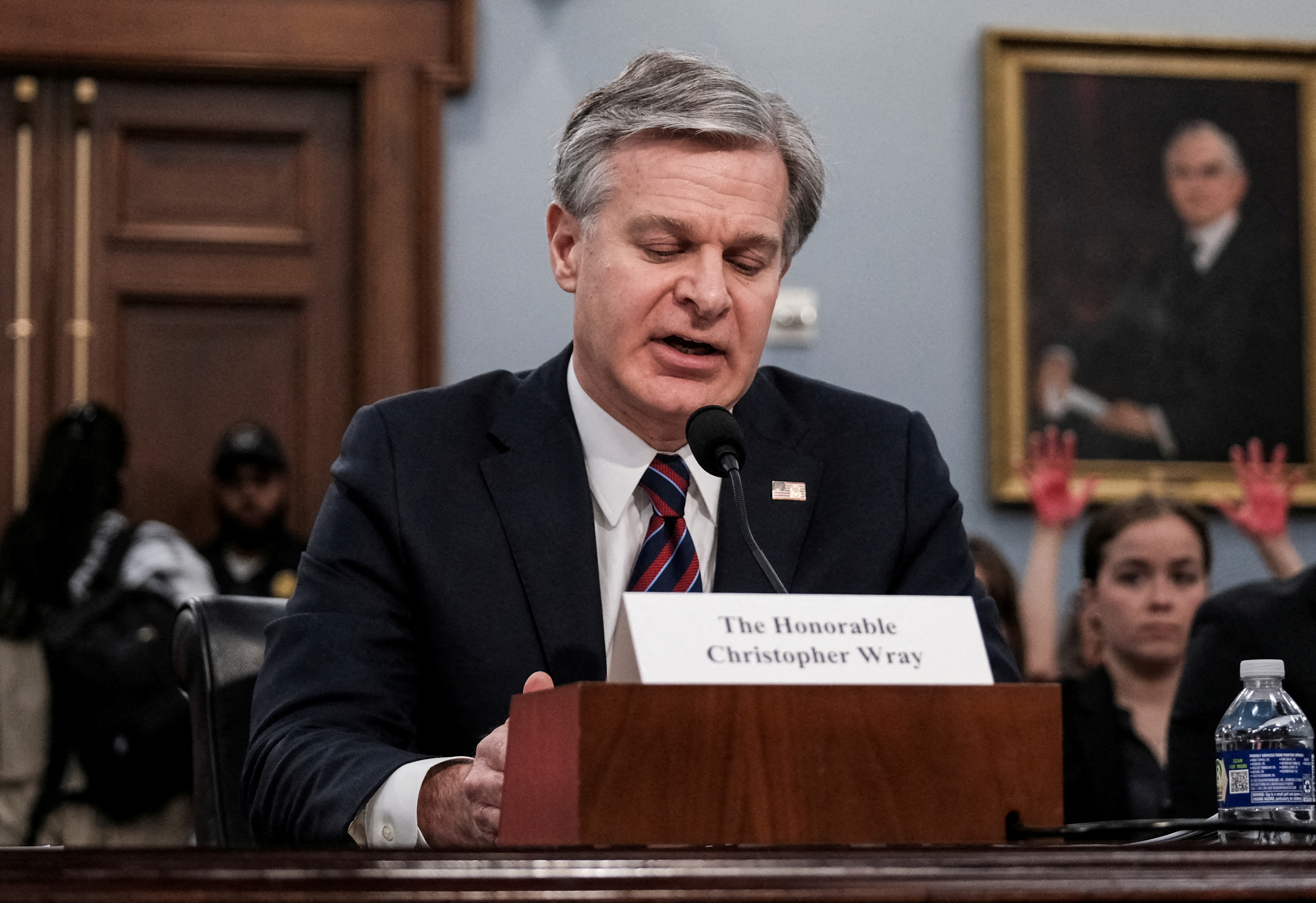
Sign up here.
Reporting by Christopher Bing; Editing by Richard Chang
Our Standards: The Thomson Reuters Trust Principles. New Tab , opens new tab

Thomson Reuters
Award-winning reporter covering the intersection between technology and national security with a focus on how the evolving cybersecurity landscape affects government and business.
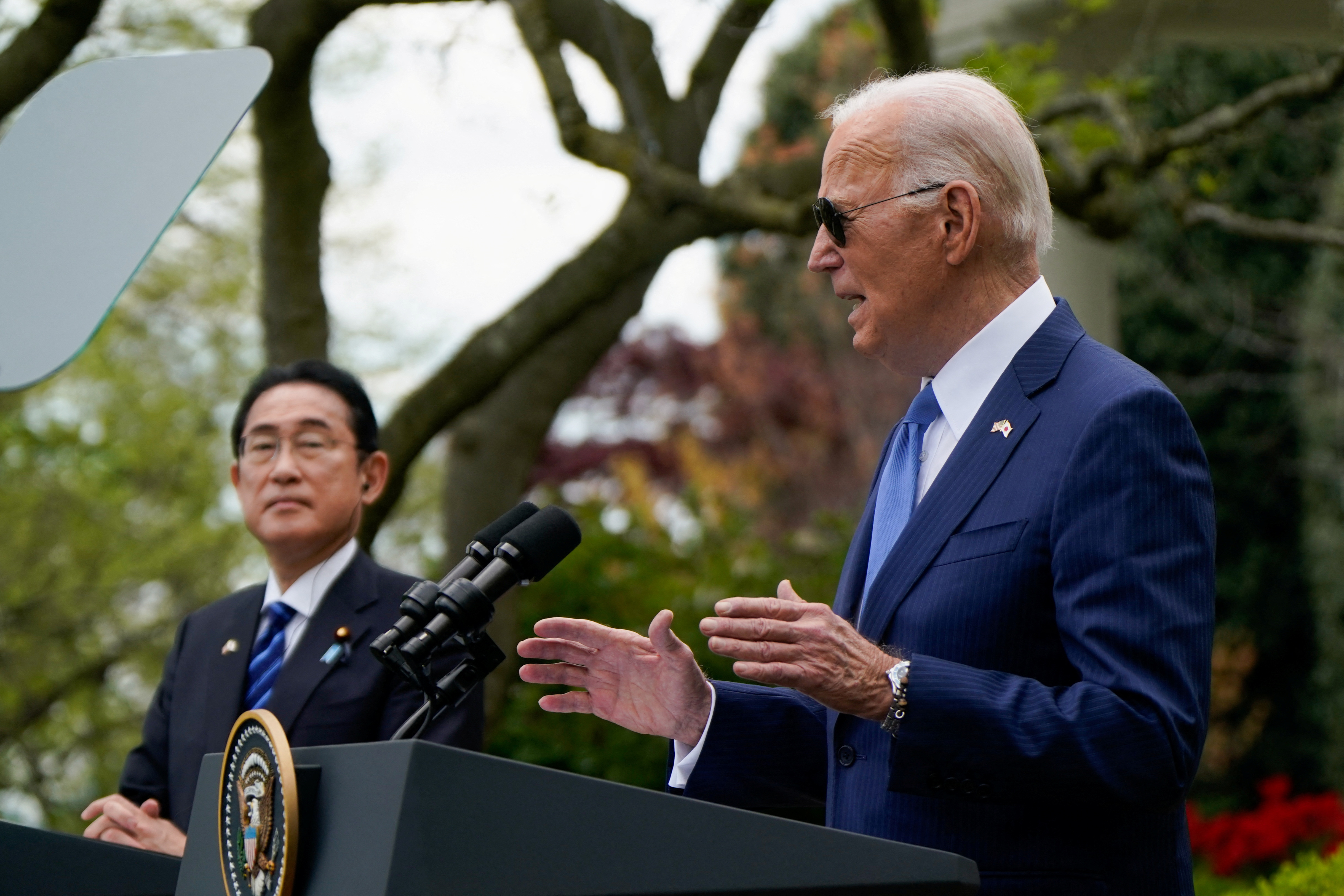
Technology Chevron
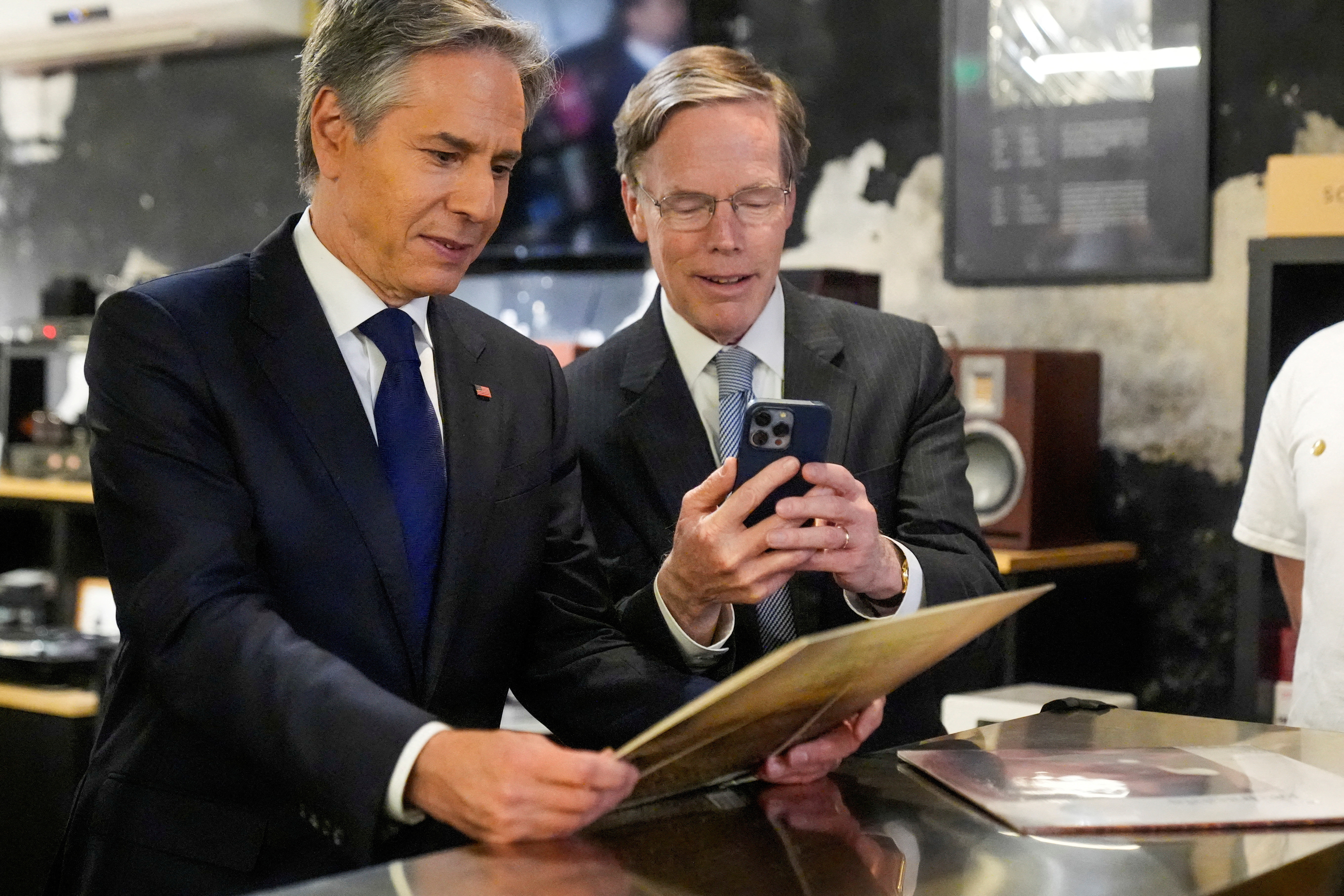
U.S. chip bans not meant to hobble China's growth, Blinken says
U.S. export controls on sending advanced computing chips to China are not meant to hold back China's economy or technological development, Secretary of State Antony Blinken said during an interview with National Public Radio on Friday.


Scotland's hate crime law: The problem with using public order laws to govern online speech
S cotland's new hate crime law came into force on April 1, sparking immediate controversy over its potential effects on freedom of speech and expression, especially online. The Hate Crime and Public Order (Scotland) Act expands on current laws about crimes that have the possibility to stir up hatred, in Scotland only.
A "hate crime" itself is not its own specific offense under existing laws, or the new law. But if you are found to commit another crime (for example, assault) and it is proven that this was based on hostility against someone's protected characteristic (usually race, religion, disability or sexual orientation) you can be given a harsher sentence.
The new law in Scotland introduces the offense of "stirring up hatred"—either in person or online—related to to age, disability, religion, sexual orientation, transgender identity or being intersex. This does not extend beyond Scotland.
A stirring up offense is committed if someone behaves in a way that the average person on the street would consider to be threatening or abusive, and that behavior is based on the victim's protected characteristic. To find someone guilty, it must be proven that their aim or purpose was to stir up hatred. This is a high threshold and difficult to prove.
Alongside threatening or abusive behavior in person, the law criminalizes sending such communications online. This has been the most controversial change. Critics fear it could harm free speech , especially online, where context is everything, but is often lost.
Of particular concern have been discussions over transgender identity—author JK Rowling challenged police to arrest her over a series of posts describing transgender women as men, though police say this did not amount to a crime.
But should a law like this even be used to govern online speech?
Stirring up offenses online
The rationale behind public order legislation, including the new Scottish law, has always been to maintain public order during a time of disorder. It is difficult to argue that online comments can amount to criminal offenses that threaten public order.
Public order prosecutions of people who make hateful or prejudicial comments online are rare —and successful convictions even rarer. There are only a handful of cases in the public domain to use as examples.
In 2012, Liam Stacey, a student, was sentenced to 56 days in jail under the Public Order Act 1986 for sending tweets intended to stir up racial hatred aimed at footballer Fabrice Muamba . As I and other legal scholars have argued , while Stacey's tweets were clearly abusive, they never threatened public order. And yet, he was convicted of a public order offense, under a law enacted 20 years before Twitter even existed.
The act was also successfully used to prosecute 45-year-old Wigan man Stuart Sutton , who received a 16-month custodial sentence in 2022 for posting anti-Semitic and racist commentary online.
Distinguishing between intent to stir up hatred and speech intended to inform rather than offend is incredibly complex, especially online where proving public order is under threat is near impossible. Indeed, speech intended to inform is protected under the European Convention of Human Rights , even if it could be construed as racist.
In most cases, online comments have been successfully prosecuted under other existing laws, such as communications offenses.
Following England's defeat in the 2020 Euros, three people were arrested for public order offenses relating to stirring up racial hatred. But, in the event, each was later charged and convicted of sending a grossly offensive message in violation of the Communications Act , as opposed to a public order offense.
Scotland had another law that dealt specifically with threatening communications, as well as behavior at football matches, with provisions in place to uplift sentencing for communications grounded in hate. This law was used 32 times , and was later repealed following concerns that it was illiberal and unfairly targeted football fans.
In England and Wales, provisions such as the Malicious Communications Act and the Protection from Harassment Act have been used to prosecute people for offensive comments online. The Sentencing Act also allows the courts to "uplift" a person's sentence under any criminal provision, if their offense is proven to be aggravated by hate. This is used much more commonly than specific public order offenses.
Fighting hate online
Scottish government officials have hailed the new law as a significant step forward in protecting people from hate and prejudice. The reporting of hate crimes across Scotland has been relatively low compared to other jurisdictions.
But there is little evidence that the offense of stirring up hatred itself is effective in tackling online hate , which is certainly on the rise . The reality is that prosecutions for harmful online speech are likely to fall under other existing laws.
If we really want to tackle the rise in hate online (which recent debates seem to suggest we do), public order legislation and the weight of the criminal law will never work. It is only through open and public debate and better education that we can enact change.
This article is republished from The Conversation under a Creative Commons license. Read the original article .
Provided by The Conversation
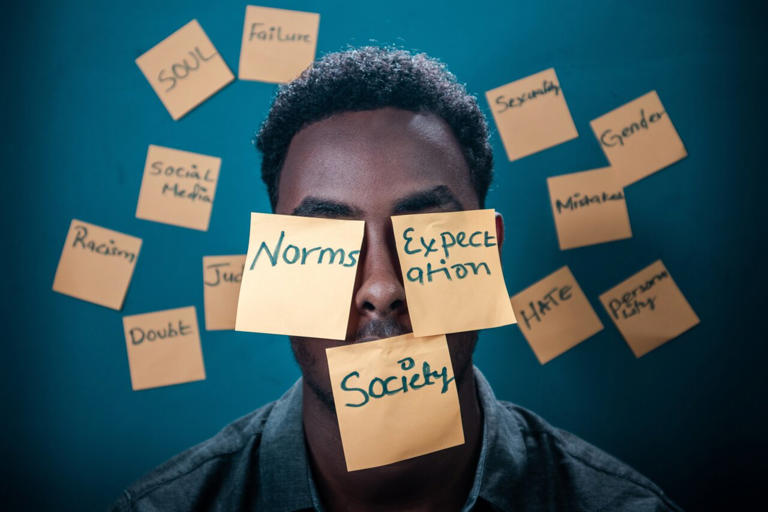

IMAGES
VIDEO
COMMENTS
1-minute Speech on Crime. Ladies and gentlemen, I stand before you today to talk about a topic that affects us all - crime. Crime is when someone breaks the law. It's like playing a game but not following the rules. It hurts us, our families, and our communities. Firstly, let's talk about why people commit crimes.
Updated 7:24 p.m. ET, June 23, 2021. President Biden announced a "major crackdown" on gun dealers who violate existing law in a speech following a nationwide surge in violent crime. He also ...
Mr. Biden's speech is centered around the 30% increase in homicides last year during the pandemic across the country, according to a 34-city sample from the National Commission on COVID-19 and ...
State Dining Room 1:59 P.M. EST THE PRESIDENT: Chief White, thank you for that introduction. And, you know, every day, you and your fellow officers put on that shield, walk out the door, and your ...
The FBI says local law enforcement agencies reported 5,479 hate crime incidents in 2014. In a Dec. 3 speech to the Muslim Advocates organization, Lynch said that more than 220 defendants had been ...
The speech comes as crime has made headlines in the nation's capital and beyond. Crime in Washington, D.C., spiked in 2023, and the killing of a Georgia college student by an illegal immigrant ...
In other Senate floor speeches in 1993 and 1994, Mr. Biden spoke openly of wanting, as Mr. Clinton did, to rid Democrats of their reputation of being soft on crime. Mr. Biden presented the moment ...
Create your free profile or log in to save this video. Watch live coverage as President Biden delivers remarks on his administration's efforts to reduce crime and make communities safer. Feb. 28 ...
That balanced approach is the hallmark of the President's Safer America Plan, which calls on Congress to invest $37 billion to support law enforcement and crime prevention, including by funding ...
MP3 audio - Standard. Price: $0.99. Request Download. Crime. President Biden spoke on what his administration is doing to combat crime and protect public safety.
Speech crimes are certain kinds of speech that are criminalized by promulgated laws or rules. Criminal speech is a direct preemptive restriction on freedom of speech, and the broader concept of freedom of expression.. Laws vary by country in accordance with the legal principles that form the basis of their system of jurisprudence.Prohibitions on shouting fire in a crowded theater (as a ...
American free speech advocates have consistently defended the right of individuals to engage in offensive speech, including speech which many observers might deem "hate speech." In the wake of the riot on Capitol Hill, many critics have argued that the violence was sparked by comments made by President Trump and some of his allies, and that ...
For some context on these stories, here's a review of the case law on "true threats": The First Amendment guarantees every person the right of free speech, but that right is not absolute ...
Donald Trump stoked fears of a migrant-fueled crime wave at the Conservative Political Action Conference on Saturday, describing the United States under President Biden as awash in "bloodshed, chaos, and violent crime.". It was a near cut-and-paste from his CPAC speech last year, when he warned that the country was becoming a "lawless ...
Bill Russo, a spokesman for Biden, said high violent crime rates at the time was key context to understanding the bill and that, "Senator-Biden's strong rhetoric" was in response to ...
United Nations. UNiting Against Hate, episode 8. 30 January 2023 Human Rights. Online hate speech might seem like an unstoppable tide, but strategies are being employed by governments, civil society, and individuals, to fight back. A new UN Podcasts series, UNiting Against Hate, explains how this dangerous phenomenon is being tackled worldwide.
Crime and justice speech Transcript of the Prime Minister's speech to the Centre for Social Justice. From: Cabinet Office, Prime Minister's Office, 10 Downing Street, and The Rt Hon Lord Cameron
The Dreadful Word: Speech Crime and Polite Gentlemen in Massachusetts, 1690-1776 argues that white, male colonial elites asserted and maintained their power and authority by policing the speech of their lower-status counterparts. They also sought to control the speech of women and Black people, and they were torn between viewing Indigenous ...
And we can do it without the government policing speech. In fact, Congress does not have to do anything. It doesn't even need to touch Section 230, the now infamous 1996 law that gives social ...
Additionally, because of a motivated group of individuals who saw injustice, in 1980 Wisconsin became the first state to pass a Crime Victims Bill of Rights. Soon thereafter other states followed. In 2004 Congress passed the federal Crime Victims' Rights Act. Today, every state has some provision addressing protection of crime victims.
Last month, in a speech at Oxford University, I laid out the Department's focus on AI and its potential impact on our justice system. ... Where AI is deliberately misused to make a white-collar crime significantly more serious, our prosecutors will be seeking stiffer sentences — for individual and corporate defendants alike. And compliance ...
The impact of hate speech cuts across numerous UN areas of focus, from protecting human rights and preventing atrocities to sustaining peace, achieving gender equality and supporting children and ...
Generally, however, hate speech is any form of expression through which speakers intend to vilify, humiliate, or incite hatred against a group or a class of persons on the basis of race, religion, skin color sexual identity, gender identity, ethnicity, disability, or national origin. 1. In the United States, hate speech is protected by the ...
The Conservative leader's speech on crime, delivered in Middlesbrough on August 10. Tue 10 Aug 2004 07.16 EDT. Share. I am delighted to be here in Middlesbrough with Ray Mallon this morning.
March 31, 2020. You have to deliver a speech in the Morning Assembly on the topic 'The increasing rate of crime in today's society'. Write the speech in about 150 words. Respected Principal, honourable teachers and my dear friends. Today, I, Shivam Bhardwaj of Class XI stand in front of you to share my views on the increase in crime rate ...
Chinese government-linked hackers have burrowed into U.S. critical infrastructure and are waiting "for just the right moment to deal a devastating blow," FBI Director Christopher Wray said on ...
The Crackdown on Student Protesters. Columbia University is at the center of a growing showdown over the war in Gaza and the limits of free speech. April 25, 2024, 6:00 a.m. ET. Share full article ...
Scotland's new hate crime law came into force on April 1, sparking immediate controversy over its potential effects on freedom of speech and expression, especially online.
Thu 25 Apr 2024 // 21:43 UTC. Baltimore police have arrested Dazhon Leslie Darien, the former athletic director of Pikesville High School (PHS), for allegedly impersonating the school's principal using AI software to make it seem as if he made racist and antisemitic remarks. Darien, of Baltimore, Maryland, was subsequently charged with witness ...
Scotland's new hate crime law came into force on April 1, sparking immediate controversy over its potential effects on freedom of speech and expression, especially online. The Hate Crime and ...